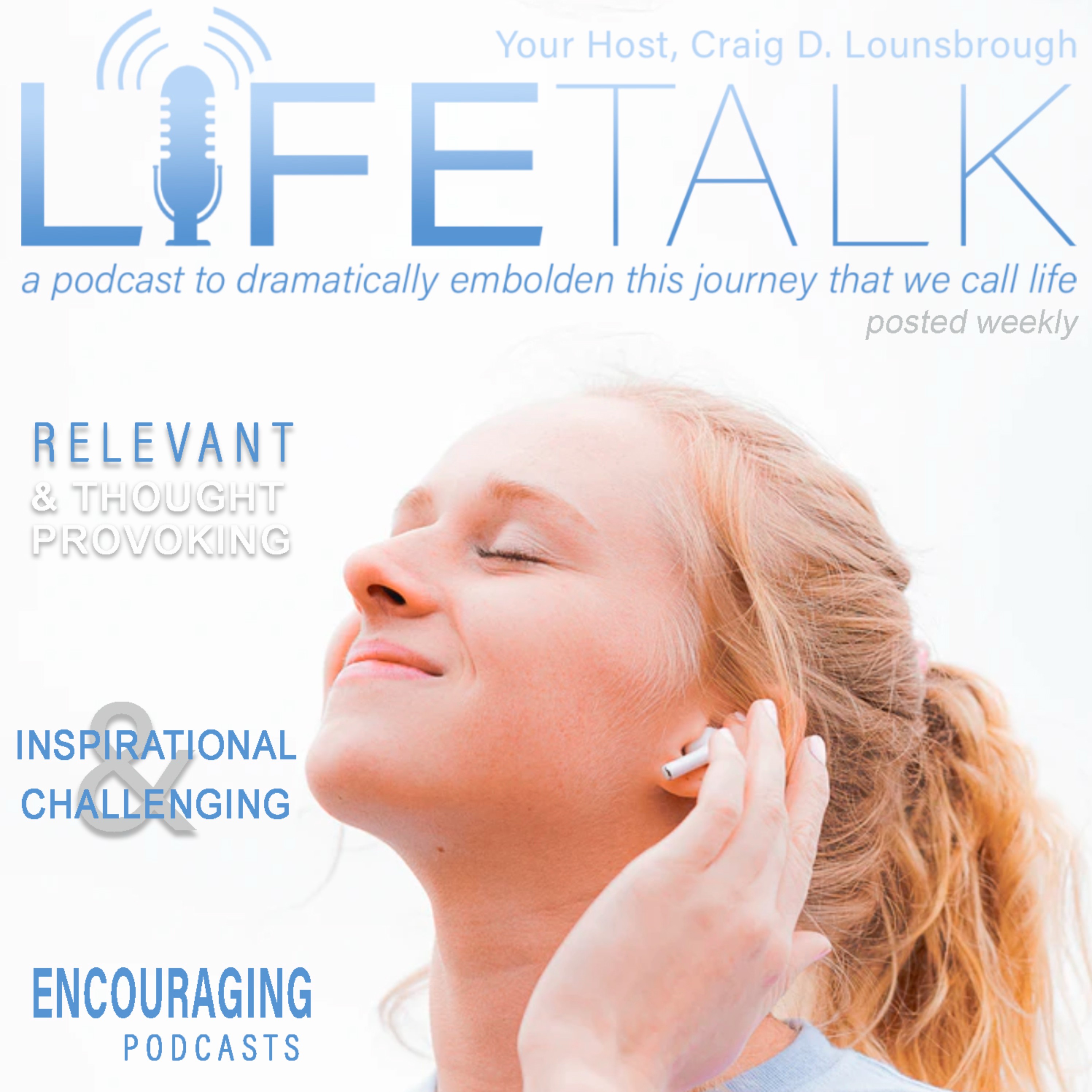
21K
Downloads
273
Episodes
Life Talk is a podcast intentionally designed to enrich your life, deepen your marriage, enhance your parenting, maximize your work life, and dramatically embolden this journey that we call life.
Life Talk is a podcast intentionally designed to enrich your life, deepen your marriage, enhance your parenting, maximize your work life, and dramatically embolden this journey that we call life.
Episodes
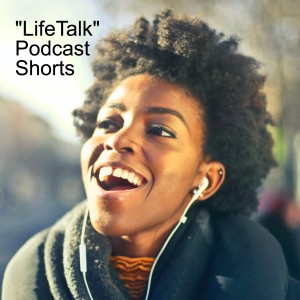
Friday Aug 25, 2023
Podcast Short: What I Don’t Want to Hear
Friday Aug 25, 2023
Friday Aug 25, 2023
Might I Say - What I Don't Want to Hear
We hear a lot of things. A whole lot of things. We’re incessantly bombarded with sheets and shards and streams of information. It’s about bits and bytes and boatloads of data that we ingest and digest without even realizing that we’re doing that. Either consciously or unconsciously we compile all of that sordid stuff into some sort of choppy mosaic about the life around us and the world within us. And as insidiously dangerous as it is, in time this rather indistinct and somewhat dubious mosaic becomes our reality. In essence, it becomes our existence.
It seems that we tend to be busy about a whole lot of nothing. We can meticulously tally the tasks of the day only to be inordinately perplexed that for some reason the sum total doesn’t come anywhere close to reflecting the sum total of everything that we expended in accomplishing those things. So consumed are we in the tasks of ‘nothing’ that we don’t have time to think about ‘something’. Therefore, we have irreparably fallen in love with plug-and-play and pre-fab. We like things pre-packaged, prepared, and predetermined. We’re looking for answers that were already ingested, digested and reflexively regurgitated for our reflexive consumption by whatever source we happen to have happened upon. In essence, we don’t think. And in fact, there are few things as dangerous as that.
We’re going to ingest a whole lot of something. That’s inevitable. And if that ‘something’ shapes us with that much force, we might be wise to ask what that ‘something’ is.
We live in a world roiling with bias and flushed murky with politically-correct agendas. We have splintering splinter groups proffering philosophies of every shape and sort. We’ve got the thematic propagation of ‘diversity’ that’s more about a permission to be permissive. Too often it’s about the ‘spin to win’. It’s less about truth and it’s more about triumph. It’s about the resolute and rather gritty proliferation of the agenda to the degree that truth becomes the agenda and the agenda becomes the truth. Therefore, truth becomes negotiable and pliable in a forced and placating servitude to an onslaught of dubious agendas. However, truth in the service of an agenda becomes opinion. And too often opinion is bias off the leash and running wild.
So, we need to listen for a change. We need to question…aggressively and responsibly. We need to ruthlessly investigate and corroborate. We need to quit being complacent consumers and become invested investigators. We need to use truth as a steeled template, not as a fluffy convenience. We need to bring the sturdy compass of ethics to point out the true north in every decision whether that true north is to our liking or not. We don’t need to be worldly wise, for that’s an oxymoron of the most deceptive kind. Rather, we need to be wise in the ways of God and life. We need to be sufficiently stubborn to reject the pabulum of the masses, yet pliable enough to hear the beating hearts underneath the pabulum. We need to be bold and brazen in a manner stitched tight by wisdom and lent compelling by reason. We need to be beacons of light knowing that the crowd is apt to label us as sorely antiquated and ridiculously ill-informed. We need to listen in the bravest form imaginable.
It would behoove us to remember that to live passively is to live dangerously. To live inquisitively is to live wisely. To live boldly is to live robustly. And to live our lives based on timeless principles is to honor God rather than worship everything else that pretends to be God. May we choose to abandon the former and judiciously embrace all of the latter.
“Be very careful, then, how you live—not as unwise but as wise, making the most of every opportunity, because the days are evil.”
- Ephesians 5:15-16
Additional Resources
Discover an array of additional resources on our website at www.craiglpc.com. Find all of Craig's thoughtful, timely, and inspirational books at Amazon. com, Barnes and Noble, or wherever books are sold. Also, take a moment to explore Craig's Public Speaking Resources for information regarding the resources available to your business, ministry, or organization.
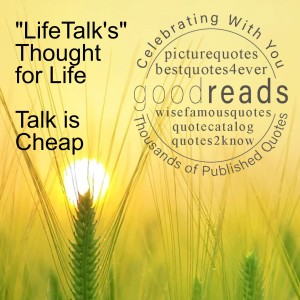
Monday Aug 21, 2023
”LifeTalk’s” Thought for Life - Talk is Cheap
Monday Aug 21, 2023
Monday Aug 21, 2023
Welcome to LifeTalk’s Thought for Life. “Talk is cheap,” as the old saying goes. We say a lot of things, more due to the fact that we believe that we’re supposed to say those things, or we say so them because, in the end, they’ll get us what we want. Consider this “Thought for Life:”
“The degree of my commitment to a cause will not be in direct proportion to the degree that ‘I am willing’ to sacrifice for it. Rather, it will be in direct proportion to the degree that ‘I am sacrificing’ for it.”
I hope that you ponder that thought today. Discover all of my daily quotes on Facebook, Pinterest, Twitter, Linkedin and Instagram.
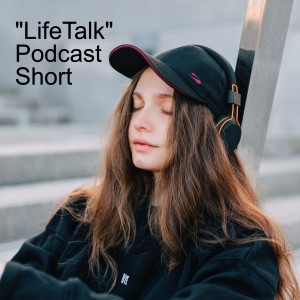
Wednesday Aug 16, 2023
Podcast Short: Is Anyone Listening?
Wednesday Aug 16, 2023
Wednesday Aug 16, 2023
Is Anyone Listening?
Is anyone listening? In the world within which you live, is anyone listening? Does your voice matter? The pain that you carry, the confusion that dogs your steps, the fear that drains your soul, the dreams that lay buried in a distant past, and a future that you sense is already being buried by the same things that buried your past…is anyone listening? In those moments when loneliness is all that you know. At those times when the loneliness has gone on for so long that you have little alternative than to believe that loneliness is the single story that life has penned for you, and that there is no other story…at those times is anyone listening?
Is there anyone who cares that you cry? Is there anyone who is willing to place themselves aside in order to make sufficient space for you to place yourself in their arms? Is there anyone who is willing to pick you up, to wipe clean the wounds that you have, to light a candle in your darkness, and help you press out into the light? Is there anyone who’s willing to get their hands dirty so that you might begin the process of getting yours clean? Is there anyone listening…at all?
And if perchance someone does listen, are they listening? Really? Or do we sense that they are listening out of obligation? Are we their project, or their charity case, and that in some way they are simply using us in some misguided way to fulfill some guilt-induced obligation to give back to society? Are we the box that they check in the ‘good deeds’ column of their lives because they haven’t checked a whole lot of boxes in that column? Or are they listening because focusing on our pain grants them an escape from their own? Or are they listening because to play the hero in our life is to make them feel that they have a life, or at least some sort of purpose in life so they don’t stumble through life feeling purposeless? Is anyone listening? Anyone?
In the Bible God says, "Then you will call on me and come and pray to me, and I will listen to you.” God will listen. Not out of obligation. Not because you are a project. Not because you are a charity case. Not because God is checking a box. Not because He’s escaping from anything, or needs to play the hero, or to grant Himself some sort of purpose. There is none of that.
God is listening. And He’s listening because to hear you warms His heart. To hear you thrills His soul. To hear you is the culmination of everything that He created, including you. He created the entirety of this world, and then He placed you in the middle of it so that you might know this God, and that He might love you. Intimate relationship. Unbroken relationship. A forever relationship. And when we broke that relationship through our sin, He refused to let that brokenness stand. That brokenness stood against everything for which God created ‘everything.’ So deep was His desire to listen to us, to connect with us, to hold us, and heal us that He sent His Son to die to heal what we broke. Yes, He listens. He created us to be heard, and when we messed it up He did nothing less than sacrifice His Son to heal what we broke. Yes, God listens. He refuses to do anything less. He listens. And because He does, He’s waiting for you to speak. And so, do the thing that you were created to do…talk to God, for He’s listening.
"Then you will call on me and come and pray to me, and I will listen to you. You will seek me and find me when you seek me with all your heart."
- Jeremiah 29:12 and 13
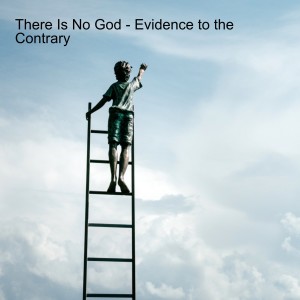
Friday Aug 11, 2023
There Is No God - Evidence to the Contrary
Friday Aug 11, 2023
Friday Aug 11, 2023
There is no God. It’s not an unfamiliar statement. In fact, it permeates much of our modern thinking, which begs the question if our modern thinking is really either ‘modern’ or ‘thinking.’
We Don’t Want a God
I think that the mentality that ‘there is no God’ is centered primarily on the fact that we don’t want a God. Therefore, out of convenience, we simply declare that there is none, for we fear that the experiences that we crave will be snatched from us, the pleasures that we wish to indulge in will be made taboo, that we will somehow be punished if things feel too good, and that this doting judge-like figure will frown on most everything that makes us happy. So, we decide that we don’t want a God. And subsequently, we declare that there is no God.
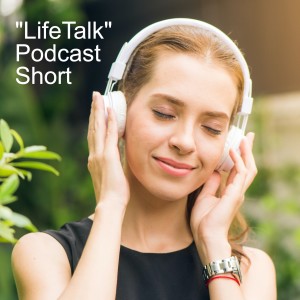
Tuesday Aug 08, 2023
Podcast Short: Good as the Enemy of the Best
Tuesday Aug 08, 2023
Tuesday Aug 08, 2023
Good as the Enemy of the Best
“That’s good enough.” How many times have those words come out of our mouths? The idea of this lackluster commitment to the living out of our lives has become so prevalent that we’ve learned to articulate it in a whole bunch of different ways. The rather robust vernacular that we’ve created to wave off responsibility and say “that’s good enough” includes such catchy phrases as “that’ll get us by until Monday,” or “that’s good enough for government work,” or “that’s doable,” or “that’s in the ballpark,” or however we say “that’s good enough.”
The whole phenomena of “sliding by” or “skating by” has always been a byword of history. Subsequently, any vague concept of a ‘work ethic’ seems to have become much less an ethic and much more of a remotely fuzzy idea. We’re constantly working out ways of how not to work. And in doing that, we forfeit doing all the incredible things that we could be doing.
Many of us seem to have developed this fairy-dust type of magical thinking where things will just be there for us. Because we can’t see the efforts and the work of those who fill the shelves of our stores, or keep the wheels of commerce greased, or who relentlessly ply the seas of a forty-plus hour work week, they tend to become invisible. And so, things are just there because they’re there.
Ultimately, our gifts, talents and abilities are sacrificed on the altar of laziness and entitlement. We lose who we are, we lose what we could do, and in essence we lose our lives. At best, whatever our best could have been is lost. Tragically, in time we gradually lose a sense that we could actually do great things, and we forfeit the transformational reality that our best is both achievable and far beyond anything we could have imagined with the best of our imaginations. We forget that to be our best is the best thing that we can be.
Being our best is asking how can we take ourselves to our own limits in any given situation? It’s asking, how do I intentionally leave every situation and every person with more than what they had when I first encountered them? Being our best involves walking away from every situation with less than what we had when we encountered it because we left something behind in the exchange. Being our best asks did we press it as far as was humanly possible, and did we walk away with nothing else we could have given?
And so, commit to being your best. Shun anything that is anything less than that. Realize that you were created to ‘best’ your own ideas of what your best is. Be your best, and in doing so transform yourself and transform those around you in the best way possible.
“Let us not become weary in doing good, for at the proper time we will reap a harvest if we do not give up.”
- Galatians 6:9
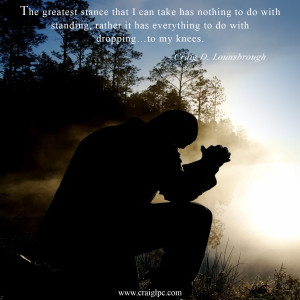
Friday Aug 04, 2023
A Noble Calling - A Noble Response
Friday Aug 04, 2023
Friday Aug 04, 2023
Life calls us to many things. We will have to step-up in more ways and in more situations that we'd likely prefer at times. And when we have to step-up, the manner in which we do so becomes extremely important. We can do so in ways that are less than admirable or less than honest. We can attempt to side-step something, manipulate it to our convenience, shape it to our likes or dislikes, engage it in a way that invites the praise of the people that we admire, or we can ignore it altogether. At some time and in some place, we will have to step-up.
As we watch the world today, many people are stepping-up in less than admirable ways. It has become less about integrity and a whole lot less about honesty. Stepping up has been hijacked by agendas of all sorts. It has been compromised by lesser things that have created a nation of lesser people. But we have the ability to step-up in ways that are noble...truly noble. We can address situations thoughtfully, ethically and with the guiding hand of timeless wisdom. We can change our families, our communities and our world by stepping-up to the challenges of life in ways both noble and brave. We can all step-up in ways that makes stepping-up something beautiful and life-changing.
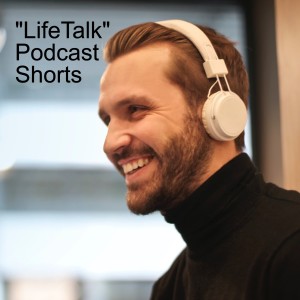
Tuesday Aug 01, 2023
Podcast Short: What Is Better...Really?
Tuesday Aug 01, 2023
Tuesday Aug 01, 2023
What Is Better...Really?
What is “better?” I mean, the definition of “better.” When we change something, we tend to label the change as “better,” whether it’s better or not. If we adjust something, or alter something, or eliminate it altogether, we define the changes that we make as “better.” We initiate new programs, or we reconstruct old ones, and in doing so we say that we are making things “better.” We craft new policies, or we tear down old businesses, or we adopt new beliefs, or we upgrade this, or we downgrade that, and we label all those actions as “better.”
But “better” based on what? What’s the criteria that determines if something is, in fact, “better?” Is it based on the current cultural climate? Or, is it based on the trends that tend to be trending? Or, is it based on the desire to make a name for ourselves, or get ahead, or beat the opposition, or bring down a boss, or lift up a cause, or promote a philosophy, or demote anything that irritates us? Is it based on our desire to make a win-fall, or get ourselves out of a freefall, or just create a free-for-all? What do we base the idea of “better” on?
Labeling something as “better” is often a justification for something that’s anything but “better”. It’s that label that we attach to our actions, hoping that people will pay a whole lot more attention to the label, and a whole lot less attention to the actions that we’ve pasted the label on. Sadly, most things are not better. They’re certainly ‘something,’ but they’re not “better”.
But what should “better” be based on? “Better” is when others benefit, even if we don’t. “Better” is driven by the need of the common man, as the common man is the common cause. It’s something in the service of a hurting world, and not something that serves to hurt the world. “Better” is something that we do that leaves the world “better” than what we found it, even if we end up not being “better” in the service of that world. It’s sacrificial. It’s recognizing our responsibility to the lives around us, not the agendas within us. “Better” is when we end the day having gained nothing, but having given everything. “Better” is where love is given legs to run and greed can’t find its shoes. The world needs to be “better” in a “better” way. And that starts with you, and it starts with me, and it starts with rejecting anything that is not truly “better.”
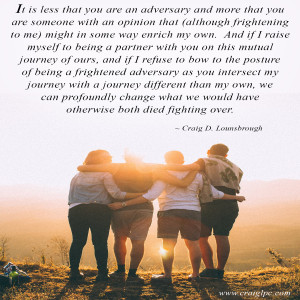
Friday Jul 07, 2023
To Think With Thought - Words of Wisdom in Difficult Times
Friday Jul 07, 2023
Friday Jul 07, 2023
Few of us think with thought. What I mean is that too few of us really examine the times that we're in verses getting caught up in the times that we're in. If we're not caught up in a particular cause or some compelling agenda of some sort, then there's a good chance that what we're caught up in is the fear and insecurity of these various causes and agendas. We're typically rather reactive rather than thoughtful. We reflexively respond, rather than digging deeper and asking the difficult questions. We move to 'fight-verses-flight' rather than something more calming and productive.
This podcast is a selection of Craig's quotes designed to give us comfort, perspective, insight and confidence as we face the uncertain times that we are living in. These quotes assist us in being thoughtful in a manner that allows us to not only effectively navigate these times, but bring something of stability and healing to them as well. They are written to help each of us become more thoughtful about the times so that our response to them can be more productive for us as well as those around us.
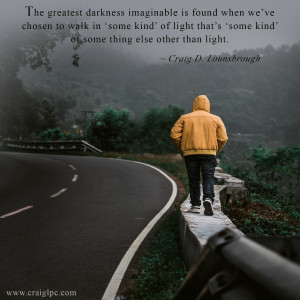
Wednesday Jul 05, 2023
Conscience or Convenience
Wednesday Jul 05, 2023
Wednesday Jul 05, 2023
We each have a conscience. Whether we listen to it or abide by it is another story. But we each have a conscience. The issue with our conscience is what will we do with it? The immediate answer might be that we will listen to it. But do we really do that? What if our conscience says "no" to the things that we want to say "yes" to? What if it takes us in an entirely different direction than the direction that we would like to go? What if is says that our dreams will be our downfall despite the fact that we are deeply passionate about those dreams? What if it calls us to something that we feel is either horribly frightening or terribly inconvenient? What if?
Too often we follow our conscience if the following is easy or if it's in keeping with our agendas. It's easy to follow our conscience when it lines up with everything that we want. But when it doesn't we often edit it, tweak it, put a hefty spin on it, or ignore it altogether. And it is in making decisions like these that we end up in places that we never wanted to be. It is the ignoring of our conscience that leads to the destruction of our lives. Our conscience is not this shrill and nagging voice. Rather, it is one of our most reliable compasses that keeps us out of the most terrible of places.

Tuesday Aug 30, 2022
”LifeTalk’s Thought for Life - The Notion of God
Tuesday Aug 30, 2022
Tuesday Aug 30, 2022
Welcome to LifeTalk’s Thought for Life. The notion of God does not set well with some people. Sadly, that notion was often shaped by people or situations or less than admirable agendas that did not reflect the true nature of this God. And if we’re going to reject something, maybe we should reject it on its true merits, not those that have been imposed upon it. Consider this “Thought for Life:”
“I can staunchly reject the notion that I was created to live in relationship with God. But should I do that, I will be unable to reject all of the consequences for which I was not created.”
I hope that you ponder that thought today. Discover all of my daily quotes on Facebook, Pinterest, Twitter, Linkedin and Instagram.
Additional Resources
Discover an array of additional resources on our website at www.craiglpc.com. Find all of Craig's thoughtful, timely, and inspirational books at Amazon. com, Barnes and Noble, or wherever books are sold. Also, take a moment to explore Craig's Public Speaking Resources for information regarding the resources available to your business, ministry, or organization.
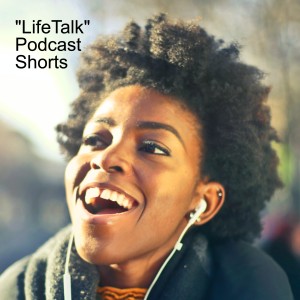
Monday Aug 29, 2022
Podcast Short: All Is Lost - Or So We Think
Monday Aug 29, 2022
Monday Aug 29, 2022
All Is Lost
Everybody seems lost these days. People don’t like to admit that, or they refuse to admit that…but everybody seems lost these days. I suppose that the greatest kind of ‘lost’ is to be ‘lost,’ but to deny that you’re ‘lost,’ even though you are. That’s about the worst kind of lost that I can think of, and we certainly see a whole lot of that kind of ‘lost’ today. Everybody seems lost these days.
Let’s face it, we live in a world that’s lost. In one way or another (or to one degree or another), the world’s always been lost. There’s a pattern to our humanity that should cause us to wise up a bit, and that pattern is that (as a species) we’re pretty consistently lost. It just seems that we’re a bit more lost these days.
And in our world today, the more that we work to become un-lost, the more ‘lost’ that we seem to become. As a culture, we walk around pretending that we have reliable maps and accurate compasses to get us un-lost. But we have neither. We attempt to create them, or make them, or say that we have them when we don’t. We claim that we have the policy, or the formula, or the philosophy, or some recent enlightenment, or some supposedly brilliant or revolutionary idea from which we can now draw the maps and fashion the compasses that we’ve been looking for, for so very long. And we grab hold of these new maps and compasses, and we use them to recalibrate wherever we are (and wherever it is that we think we want to go), and we end up deeper in woods than we’ve ever been before. The woods of our lives and our culture are littered with discarded maps and broken compasses. Everybody seems lost these days.
Of course we’re lost. We’re lost because the woods that we’re in are bigger than the resources that we have to get out them. And those woods become increasingly bigger the more that we convince ourselves that we can get out of them by ourselves. Where we are is too big for any map or any compass that we can create. And while we tend to bristle at the idea, God holds the map and has the compass. A sure map and a steady compass. And while we’re likely to continue to refute that reality, or work to ignore it in light of our incessant stubbornness, He’s got the map and the compass. And all we have to do (all we have to do) is ask Him for it. And I wonder (I wonder) exactly how lost we’re going to have to become before we finally ask Him.
Additional Resources
Discover an array of additional resources on our website at www.craiglpc.com. Find all of Craig's thoughtful, timely, and inspirational books at Amazon. com, Barnes and Noble, or wherever books are sold. Also, take a moment to explore Craig's Public Speaking Resources for information regarding the resources available to your business, ministry, or organization.
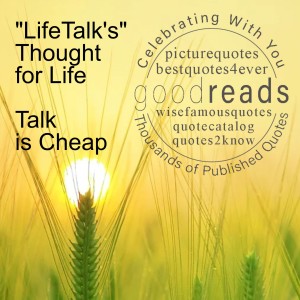
Tuesday Aug 23, 2022
”LifeTalk’s” Thought for Life - Talk is Cheap
Tuesday Aug 23, 2022
Tuesday Aug 23, 2022
Welcome to LifeTalk’s Thought for Life. We need to stop. We need to put down our calendars, set our phones aside, strip ourselves of the voices incessantly clamoring for our attention and listen. Just listen. For life is not what we’re chasing. It’s what we’re leaving behind in the chasing. Consider this “Thought for Life:”
“Rich is the person who stops long enough to listen to a bird sing in the celebration of spring, peer into the deep blue of a drowsy summer sky, draw in the pungent aroma of fall’s leaves, and watch the listless kiss of a winter’s snow. For in doing these you have witnessed that which money cannot purchase and man cannot create.”
I hope that you ponder that thought today. Discover all of my daily quotes on Facebook, Pinterest, Twitter, Linkedin and Instagram.
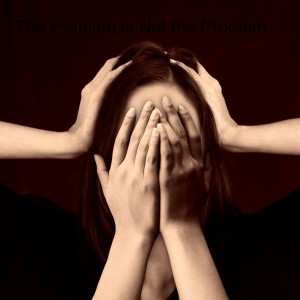
Wednesday Nov 10, 2021
The Problem is Not the Problem
Wednesday Nov 10, 2021
Wednesday Nov 10, 2021
We all have…problems. And there’s a real good chance that we have a lot of…problems. Life comes with problems. It’s part of the deal. It’s a natural part of this thing that we’re all doing called life. Life comes with problems. But the real problem is not that life comes with problems. The real problem is what we do with them.
The Problem is Not the Problem
In the majority of cases, the problem is ‘not’ the problem…despite the fact that we think it’s the problem. The problem is how we’re choosing to deal with the problem. That’s the problem. In fact, I would go so far as to say that in most cases the problem actually creates less problems than the way that we’ve chosen to deal with the problem. The ‘real’ problem is that we don’t want to deal with the ‘real’ problem. And all we have to do is look around at our culture today to realize that we have cultivated, and refined, and ingeniously perfected a whole bunch of ways to do that.
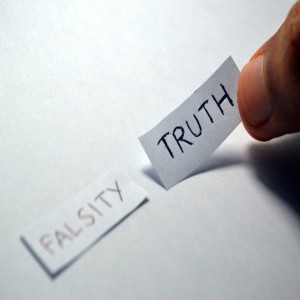
Wednesday Nov 03, 2021
Do We Search for the Truth - Or For Ways Around It?
Wednesday Nov 03, 2021
Wednesday Nov 03, 2021
Do we search for the truth, or do we search for ways around the truth? Do we even take the time to consider a question like that out of the long-held assumption that we are, in fact, looking for the truth because (we assume) that that’s the obvious thing to do? What insanity would behoove us to do anything less? But do we search for the truth, or do we search for ways around the truth? Maybe we should consider the fact that there are a whole lot of reasons why we actually might stoop to something less.
Do we search for the truth even when it takes the foundations that we’ve laboriously built with the sweat of our brow and the best of our years, and does truth handily expose those foundations as weak, entirely misappropriated, and as nothing more than sand piled in every place except the right place? Will we search for truth even when it looks us square in the face and tells us this kind of stuff? Will we search for it knowing that there is a very distinct possibility that it will tell us everything that we don’t want to hear in every way that we don’t want to hear it? Will we search for truth even then?
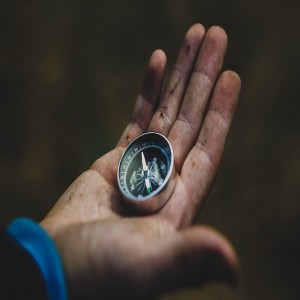
Wednesday Oct 27, 2021
Better or Worse - The Clouding of Our Choices
Wednesday Oct 27, 2021
Wednesday Oct 27, 2021
Will the choices in front of us make us better or worse? Will they improve our lives, or diminish our lives? That depends on who and what is informing those decisions. Is it people with questionable agendas, or is it a culture trending on a rogue wave of self-gratification, or is it our own lack of thoughtfulness and integrity? Whatever it might be, we might ask who and/or what is informing our decisions? And how much are they clouding that decision to the point that we will be set up to pay a potentially unimaginable price in making it…for we have all paid such prices before and we would be the fool to pay them again. For the wrong information, and the wrong motives, and the wrong value system will leave you on the wrong side of every choice, and choices that leave you on the wrong side never make your life better.

Wednesday Oct 20, 2021
The Battle - I'd Rather Be David
Wednesday Oct 20, 2021
Wednesday Oct 20, 2021
Battles. We all fight them. Sometimes they're just the minor things that are a natural part of the day-in and day-out living of our lives. Sometimes they're unspeakably brutal and unexplainably savage, making no sense as to why they're happening. Battles can sometimes be something more of a minor irritant, or they can be something that leaves our lives in flames, cinders and ash. At times we battle people, we battle circumstances, we battle society, we battle injustices, or we battle within ourselves. Either way, we all fight battles.
But how do we fight them? Do we fight them just to survive them? Do we choose not to fight and opt to surrender as the easiest course of action? Do we fight them by playing the victim and therefore not really fight them at all? Do we have someone else fight our battles for whatever reason we have them fight them? Battles will come as they are a natural part of our existence. But how will we fight them? And how much does that choice dictate the outcome that we will live with?
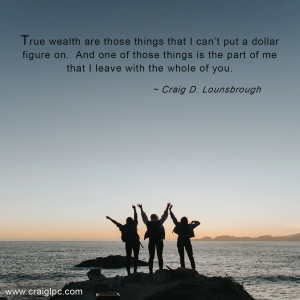
Wednesday Oct 13, 2021
We Are a Message - Sending a Message
Wednesday Oct 13, 2021
Wednesday Oct 13, 2021
You are a message. You cannot live your life without someone, somewhere watching you. Your existence is not solitary to the point that that existence does not impact another life. Your's is not a life of isolation. You are not insulated from the rest of the world in a manner that that world is not impacted by you. You are a message, whether you like that or not. And because you are, you might ask what kind of message you are sending.
Think about it. The fact that we are a message to others positions us to change things. Sometimes we feel inadequate, small, and something more of an anomaly in this infinite existence within which we find ourselves. But because we are a message, we can touch other lives. In fact, we can change other lives. And in the changing, they can likewise go and change other lives themselves. You are a message and because you are you might wish to consider what kind of message you're sending, for the quality of your life and that of generations to come will be effected by the message that you leave.

Wednesday Oct 06, 2021
How Have We Come to This Point? The Rejection of God
Wednesday Oct 06, 2021
Wednesday Oct 06, 2021
How have we come to the point where the message of the Gospel is largely considered irrelevant in 21st century America? How is it that God is outmoded, outdated, antiquated, and has nothing of value to say to us as we live out our lives today? How is it that the God Who created ‘all of this’ has been left behind by the very thing that He created? How have we come to this point?
But maybe the question is not “how,” but “why.” Why have we come to this point? Why have we come to visualize God as some ancient artifact that might have worked for less educated people living out their lives in some primitive society hundreds, if not thousands of years ago? Why have we relegated Him to a period of time long gone, and in doing so completely failed to recognize that times might change, but people don’t? Why have we come to see God as entirely outmoded in light of our progressive philosophies, or our ever-shifting ethics, or our new morality?
God is most relevant thing in existence. His principles apply to our world today probably more than any time in human history. He alone holds the truths, the ideals, the values, and the principles that can assist us in navigating the profound challenges of our times and our lives. The principles handed down to us in the Bible are entirely sound, uncompromisingly relevant, timely in ways that are mind-boggling, and sufficiently powerful to assist us in navigating the descending darkness of the times that we live in. God and His principles are the most relevant thing that I can think of.
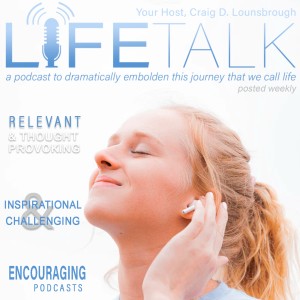
Wednesday Sep 29, 2021
Am I Paying Attention? - Being Aware
Wednesday Sep 29, 2021
Wednesday Sep 29, 2021
Are we paying attention? We think that we are. We would tell others that we are. We lead ourselves to believe that we've embraced opinions or points of view because (in our minds) we really took the time to understand the dynamics related to them. We would say that we're informed, probably more than any generation before us. We listen and we read and we analyze, so we say and so we think. But are we paying attention?
Too often we're not paying attention at all. Not really. We're frequently embracing something because someone we admire is embracing it. We're standing up for some cause because it looks good on the surface and we all too readily assume that if it looks good on the surface, everything underneath the surface must be good as well. We're invested in something because a whole bunch of other like-minded people are invested in it, so with so many people invested it must be worthwhile. The fact of the matter is, we're not paying attention. And maybe what we need to do today is to pay attention to the fact that we're not paying attention and begin to recognize the incredible problems that that continues to create.

Thursday Sep 23, 2021
An Intimate Collision
Thursday Sep 23, 2021
Thursday Sep 23, 2021
We are empty. Terribly empty. We don't like to admit that...but we are empty. And into that emptiness we throw all kinds of things...relationships, money, material wealth, alcohol, career pursuits, various belief systems, self-help gurus, bulging portfolios, and more. We throw all kinds of things into the hole that's within us.
But the hole remains. Despite how much we throw into it, the hole remains. And have we ever considered how it is that we can throw so much stuff into a hole and yet never fill it up. In fact, despite all of the things that we throw into it, it remains just as empty as if we'd never thrown anything into it in the first place. But we don't learn that lesson all that well. And therefore, we just keep throwing in as much stuff as we can get our hands on.
We are empty. Horribly empty. And that emptiness is only magnified by our panicked efforts to fill that hole, only to fall exhausted on the ground of our lives realizing that the hole is entirely untouched. For whether we like to believe it or not, or whether it runs contrary to our cherished agendas, or whether it's vogue or not, only God can fill that hole. Only God.
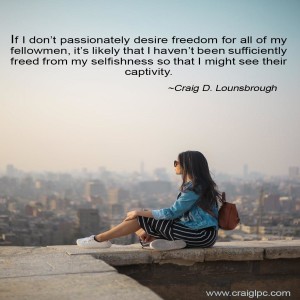
Wednesday Sep 15, 2021
What I Work to Remember - They Are People
Wednesday Sep 15, 2021
Wednesday Sep 15, 2021
In the midst of their behaviors, I often forget that behind the behaviors are people. When they rant about some cause or press some agenda down the throats of everyone around them, I forget that they are people. When the worst of them triggers the worst of me and I wish things upon them that I should not wish upon them, I would be wise to remember that they are people. When they respond with selfishness or ignorance and I sit pondering what's wrong with them, I need to remember that they are people...just like me.
It doesn't take long to become jaded. We can move rather quickly to a position of hatred, bitterness and resentment. And in doing so, we become contributors to the division and alienation that we say we hate. Moreso, we become the people that we say we dislike, and in doing so we become a little less (or maybe a whole lot less) like God. And so, maybe we need to think about things differently. Maybe we need to realize that all of these people are 'people.' That behind the behaviors, the choices, the rants and thoughtless behaviors, there are people who are just like us who are imperfect (just like us). And maybe in realizing that, we can begin to close the gap instead of contributing to it.

Friday Sep 10, 2021
Heralding a Hero - A Tribute to 911
Friday Sep 10, 2021
Friday Sep 10, 2021
What is a hero? A real hero? Not one cast of some script or fashioned as part of a fictional plot. Not one that is created by political spins, or constructed by syrupy platitudes, or made larger-than-life by nighttime talk shows. Not the Hollywood type, or those who are deemed heroic because they play a sport or have acquired some degree of social visibility. None of these. The question is, "What is a real hero?"
As we approach 911, we might want to ask that question. We might consider that we have laid the mantel of 'hero' on many people who were nothing of the sort. We have reigned down accolades on those who have only risked in an arena made safe, but never risked in one that was not. We hold up individuals who read the script and play the part but never actually do the part. And given that we have done that far too many times, maybe at the remembrance of 911 this is a time to ask, "What is a hero?" Really. Craig's podcast takes a thoughtful, yet direct look at that question so that we might celebrate true heroes.
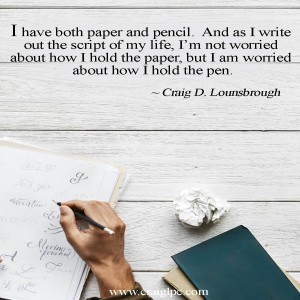
Wednesday Sep 08, 2021
We Are Better Than This
Wednesday Sep 08, 2021
Wednesday Sep 08, 2021
We are better than this. We are better than who or what we've become. We are better than the poor choices that we have made and the life of compromise that we are living. We are capable of phenomenal things that we can barely imagine, if we can imagine them at all. Yet, we stoop to lesser things. We bow to the bane of compromise and we walk in the shadow of mediocrity. We settle for the crumbs that we toss out to ourselves while not understanding that a meal of epic proportions is ours for the taking.
We live minimal, marginalized and menial lives not because we have to. We live those lives because we choose to. We live in the shadow of what we could be but often never become. And the consequence of this minimized existence diminishes both ourselves and everything around us. We are better than this. In fact, we are far, far better than this. It's not too late to understand who we are and to start living in the power of that person. We are better than this and now is the time to step up to engage that marvelous reality.

Thursday Sep 02, 2021
Accountability - Choosing to Be Accountable
Thursday Sep 02, 2021
Thursday Sep 02, 2021
We don't like to be accountable. We hate being called on the carpet or called out. Often we prefer just to put our tail between our legs and sneak away to some place that no one will ever find us. Or we choose to justify our actions, place blame, or write it off to a bad day or a bad week or a bad life. We want to make excuses why it really wasn't all that bad, or that our intentions were good, or we were misinformed, or a hundred other excuses to keep us from having to be accountable. We don't like to be accountable.
Being accountable means that we have to own our stuff. We have to admit our mistakes, own up to our greed, face the music when we penned the lyrics, and simply say that we were wrong. That's tough. But it's needed. We need to be accountable. We need to own our mistakes. We need to 'belly up to the bar' and admit that we made a poor choice. And then we need to correct those errors despite the cost to us in doing so. Look at our world today. It's abundantly clear that we need to grow up and be accountable. And that starts with each of us.
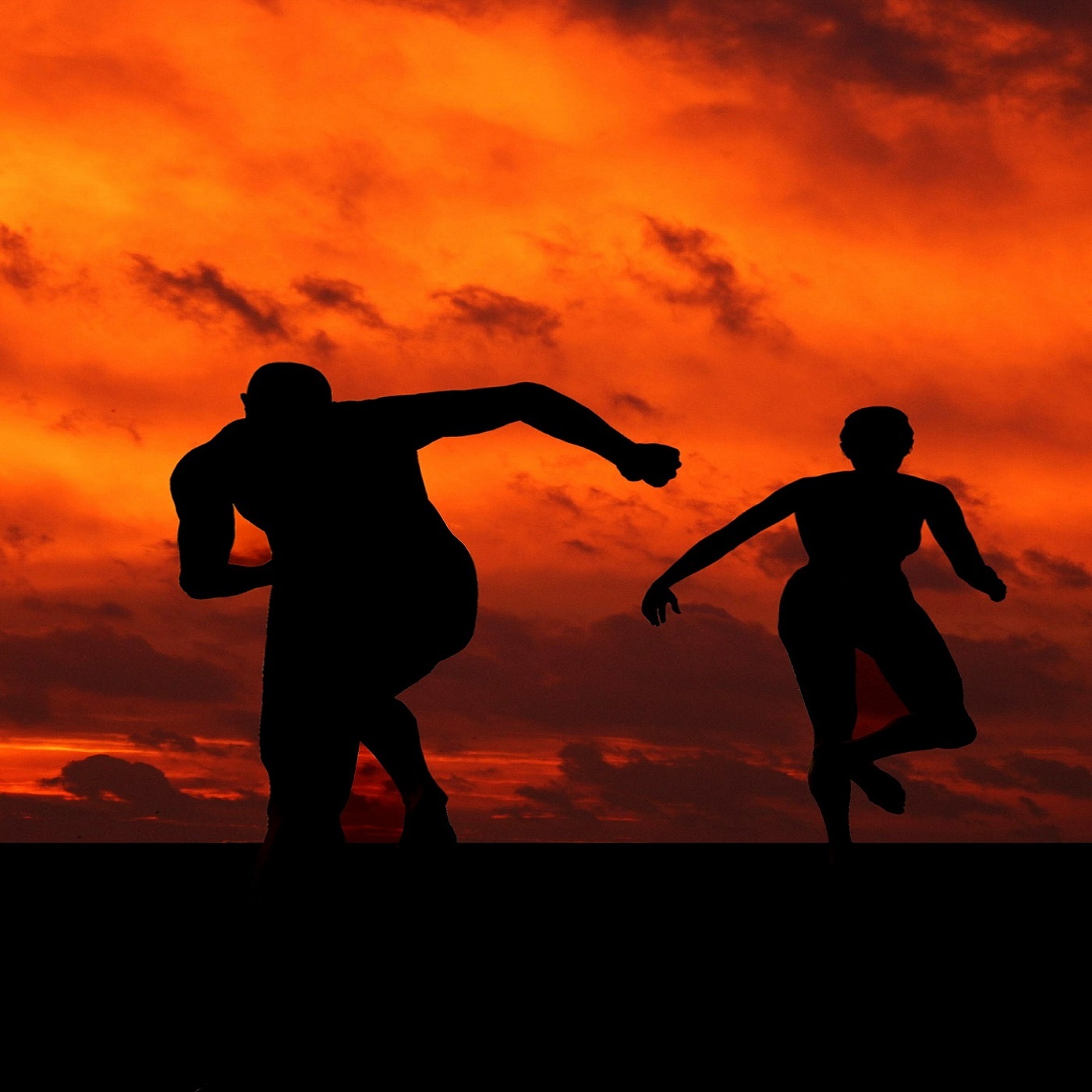
Thursday Aug 26, 2021
Shep - To Run With a Limp
Thursday Aug 26, 2021
Thursday Aug 26, 2021
We all have a limp that relentlessly dogs our steps, causing us at times to be dog-tired as we work against our limp in order to keep our lives sufficiently erect. For some of us, our limp is so slight and relatively minor that it’s really quite difficult to detect. For others of us it’s blatantly obvious, causing us to lurch through life with unsteady and uncertain steps. To whatever degree we limp, we all walk with a limp.
There are those of us whose limp is clearly physical, rendering its effect on our cadence as painfully obvious. Then there are those of us whose limp is emotional, or relational, or spiritual. It might find its origins in a relationship gone bad, or a life gone nowhere, or hope gone away. The possibilities are as endless as the ways in which each of us limp. But we all walk with a limp.
Shep– Running with a Limp
His name was Bob Shepherd. My Dad called him “Shep” for short. The name stuck with him throughout the length of their friendship, ultimately going to the grave with both of them. Dad and Shep mutually shared an array of marvelous life experiences that made them the best of friends.
Shep’s limp was polio. His left leg hung a full three inches shorter than his right leg, profoundly throwing his body from left to right with a heavy pendulum-like cadence that should have toppled him with each step. But Shep mastered his limp in a manner that his cadence was a match for anyone who would walk the road of the life with him. Indeed, Shep walked with a limp. But as Shep found out, a limp need not be limiting.
The Assumption
Our limps carry an assumption. And typically the assumption is that the limp will be limiting despite the limit of our efforts to make it otherwise. Our goal is to limit how limiting we think our limp might be. It’s all about minimizing the limp which casts the limp always and forever as a disability and a liability, thereby completely robbing it of possibility.
Getting Close to Normal
Or we set about the task of defining“normal,” and we determine that whatever “normal” is, we’re not normal. Then we determine exactly how far our limp has put us from “normal.” It becomes a grand crusade to get as close to “normal” as we can, rather than understanding that we can create an entirely “new normal” that can be far more impressive than the bland “normal” that we’re chasing.
Surrender
For some of us we surrender to our limp,feeling that the nature of our limp is forever beyond our ability to offset in any manner despite our most aggressive efforts to do so. We grieve whatever loss our limp has thrust into our lives, and we chart a defeated future that’s now mapped out by whatever our limp happens to be.
The Possibilities of the Limp
Is it possible that our limp is the very thing that allows us to run? And without a limp, could we in reality run? Have we been so entangled in assumptions, and so enslaved to some definition of normal,and have we embraced a defeated posture of surrender for so long that we’ve missed the potential inherent in the limp? Is a limp the very thing that distinguishes us from others in a way that gives us a powerful platform from which to influence others? Does a limp give us distinctive experiences that others will never have the privilege of experiencing? Could it be that such a glimpse dramatically expands our view of life, while our limp profoundly extends our experience of life? If so, then our limp could very well be the greatest gift and the most profound opportunity that will beset this life of ours. Like Shep, we can run with a limp.
Limp and Legacy
Our limp could potentially be one of the greatest assets that we will ever possess. And so as we consider our limps, it is my hope that we see the tremendous possibilities in them and the privilege of having them. Like Shep, may we master our limp in a manner that our cadence is a match for anyone who would walk the road of the life with us. May we run with a limp in a way that we could never do so without one.

Thursday Aug 19, 2021
The Worst Slavery - Slavery to Ignorance
Thursday Aug 19, 2021
Thursday Aug 19, 2021
Slavery as an institution is pretty far removed from the minds of most of us residing here in 21st century America. Slavery sits back plenty far enough in the faded, yellowed and brittle pages of history to create a more than comfortable chasm between us and itself. We view that chasm of time and social development and modernism as broad enough to keep slavery from leaping from the past across that chasm into the present. The idea of slavery seems to evoke dusty black and white tin-type images of the Civil War, the expansive plantations of the Deep South, bloodied chains, inhuman whippings, and wild-eyed slaves fleeing through swamps, thick underbrush and the wilderness of their own fear.
Those kinds of pictures have become our definition of slavery; the visual that creates a picture of what slavery is. That definition is nearly exclusive, making our definition of slavery so incredibly tight that we can’t see any other kind of slavery at all. And if we don’t see slavery, we assume freedom. That assumption in and of itself can be enslaving.
Slavery to Ignorance
Martin Luther King, Jr. wrote, “Nothing in all the world is more dangerous than sincere ignorance and conscientious stupidity.” Ignorance is being oblivious,to one degree or another, to the obvious. It’s not seeing what actually ‘is’ to the point that whatever it ‘is’that ‘is,’ isn’t . . . at all. It’shaving no recognition of something that exists despite how very real and very powerful that thing might be. It seems that kind of living can be freeing in some cases, and horrifically dangerous in others. The worst kind of ignorance is when we’re ignorant that we’re ignorant. At that point slavery leaps out of tin-types and into our worlds.
Ignorance can open the doors to a lot of things and give a whole lot of space for a whole lot of things to exist in our lives. Yet I think that ignorance of slavery or our enslavement is one of the worst things of all. To be ignorant and to be enslaved at the same time seems to be the absolute worst kind of slavery since we don’t even know that we’re enslaved.
What Enslaves Us?
How many things enslave us? We tend to see that things demands things of us, that we struggle with certain behaviors or attitudes, that we have our holes to dig ourselves out of, and our mountains to climb over. We look at our lives and see what we need to change, what should be altered, where we need the proverbial “nip n’ tuck,” a bit of “cut and paste,” or maybe a little bit of Botox for the personality. We likewise see the pieces of ourselves that need to be entirely eliminated in some sort of wholesale,demolition-like fashion.
We see our foibles, the fallacies of false fronts, our warts and things that warrant our attention. We know that we’re not where we should be and that where we should be isn’t anywhere along the road of where we’ve been going. We know at times that our values have been compromised, our integrity has been marred, and that far too often our morality has had the air completely sucked out of it. We know that we haven’t been accountable when we should have been, we haven’t apologized when we should have, and that we’ve never restored even half of what we’ve stolen along the road of our lives. We know.
Ignorance in Action
Yet, we tuck these things in the file of ignorance and then we file it away in the filing cabinet of forgetfulness. In reality, we walk with all of this stuff hanging on with claws embedded in our hearts, and roots entwining our souls. Yet we ignore them. We skip and cavort through life to some sort of fabricated tune whose verses sooth us with lyrics that all is good and our lives are squeaky clean and polished to a mirrored surface.
Or we manipulate ourselves into believing that whatever good that we have is good enough. That life is more about the business of survival which doesn’t afford us the larger luxury of introspection, personal evaluation and the sweaty rigor of change. We don’t see anyone else focusing on all that negative stuff and so we assume that it must not be all that bad or everyone else would be focusing on it . . . wouldn’t they? We find some comfort in the belief that overall we’re good people and at least we try to do the good thing even if we don’t end up doing the good thing. We create expansive and ornate rationalizations to justify ignorance, and we do a bang up job of creating them. We lull ourselves into belief that in the end, all of that stuff really doesn’t matter all that much anyway and that it will sort of eventually fall off behind us and kind of blow off the road of our lives, somehow getting lost somewhere in the wilderness of our journey . . . so we think. Therefore, we settle in ignorance and let ignorance give all of these things space to enslave us.
Our Enslavement
We are a peculiar people indeed. We tend to focus on the tasks that will either achieve our goals or keep our heads above water, whatever our situation might be. We’re notorious for feeding,watering and carefully attending to all the superficial stuff, but we put the real stuff out of sight behind the impermeable veil of ignorance. And we live as slaves to that stuff. We work to tactfully or not so tactfully counter the real stuff and we futilely attempt to offset it by managing and manipulating the superficial things and focusing on the things that don’t hit us too hard or upset us all too much. Yet all of our efforts to offset all of the things stored in ignorance are wholly insufficient. We live trying to change things by ignoring them. We attempt to resolve them by countering them with something else that isn’t as difficult or problematic dealing with. We try to cheat ourselves to health and wholeness.
The end result is slavery to those things we’re chosen to ignore. They drive us to futility attempting to compensate for them by ignoring them. They pound and thunder and bend us from behind the veil of ignorance. They dog our steps and flog our minds. They draw us down and drag us out. They impale us as they impact us. In short, we become subject to them whether we wish to acknowledge its happening or not. We become so enslaved by our own foolish and short-sighted vision that we become ignorant to that which enslaves us. When that happens, we become slaves in the most awful manner possible.
Refute and Refuse Ignorance
We refute and refuse ignorance by being honest about our weaknesses and failures. We acknowledge and bring to the forefront all of those things, we work to work through them with diligence and beat them by resolving them. In that way our enslavement can truly end.
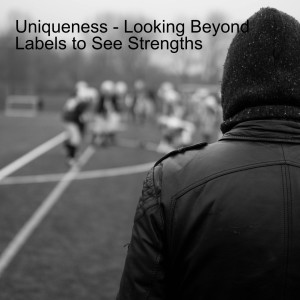
Thursday Aug 05, 2021
Uniqueness - Looking Beyond Labels to See Strengths
Thursday Aug 05, 2021
Thursday Aug 05, 2021
You ever notice that we seem to be on this relentless quest where we’re scrutinizing ourselves raw in order to ascertain what we think our flaws, our foibles, our weaknesses and our warts are? We put ourselves under some sort of minutely dissecting microscope with skewed lenses in order to ferret out all of our little imperfections. We incessantly crawl around on all fours with our eyes mere centimeters from the surface of our lives, scratching and picking and sorting so that everything that we are is entirely clean, socially acceptable, without cultural blemish and perfectly instep with whatever it is that we’ve chosen to determine our steps. With our noses to the ground on an outrageously mad hunt for any and all imperfections we whittle away our lives being what we think we’re supposed to be, rather than being who we were created and designed to be. Ever notice?
What Sets the Standard For Our Search?
There’s certainly a standard in our culture. There are expectations that clearly outline who and what we’re supposed to be. Those expectations are based on culturally acceptable norms that create “cookie-cutter” stereotypes. Stereotypes perpetuate the cultural norms by encasing them in some kind of frozen blocks so that they automatically perpetuate themselves in any and all places. An unknown author wrote, “Stereotypes are devices for saving a biased person the trouble of learning.” The worse bias that we can have is a bias about ourselves as it saves us the trouble of learning that we’re a whole lot more than we thought ourselves to be. A bias also saves an incessantly busy culture the time of really looking deeply into itself in order to ascertain the wealth within it. And so we press and contort ourselves in order to fit into whatever box the cultural stereotype has designed.
Society too often creates a “one size fits all” kind of mentality. There’s an assumption that there are slots to fill and we must fill the slots. Find your place, get in it and stay there. Figure out whatever the cadence is and march accordingly. Find your box, move in,decorate it, set up shop and be happy. What color is your parachute, what’s your social standing, what’s your breeding and background, what’s your disposition, what’s your passion, what’s your career, and how’s your personality wired? Once you’ve figured all that out, set it aside, take a number, get inline and realize you’re just one of the crowd.
In many cases, the standards of society are good, meaningful and productive. There are a large number of societal standards that are worthy of our emulation. However, society too often sets standards for society, not the individual. Society often wants it clean, uncomplicated, tight and easy, so just find your place in line and get it in. Because that’s often the mindset, cultural expectations are designed to fulfill and achieve that mindset. In succumbing to it, we lose our individuality and sacrifice the resources of that individuality.
Discovering Our Uniqueness
The balance that few people seem to achieve is one where we purposefully cultivate the core of who we are, while working to slough off the biasing goo of the culture. It’s not about a blatant disregard for cultural norms or expectations at all. Rather,it’s being committed to our uniqueness as a person rather than being rigorously force-fit into whatever the culture wants to force-fit us into. It’s realizing that when we maximize who we are, we are then of maximum benefit to society and the world around us. Yet, before we can be authentically “us” we must determine who or what that “us” is. In more effectively making that determination, there are a few thoughts you might want to start with:
Understanding Our Limitations
First, healthy self-evaluation takes place when we’re frankly honest about our limitations. Sometimes our limits should be exactly that .. . our limits. Wisdom often involves knowing when to stop, when far enough is far enough, and when it’s legitimately time to invest our energies elsewhere. Limitations exist for reasons. It’s not about giving up or surrendering or being weak-willed or passively apathetic. It has nothing to do with being sheepish, shy, insecure or outright scared. Rather, limitations let us know when something is completed, that further work on our part is unnecessary, that anything beyond this point is squandered energy, and that we need to direct our resources toward the next place in our lives.
Developing Realistic Expectations
Second, effective self-evaluation takes place when we’re realistic about our expectations. Our expectations can be too high, too low,entirely misdirected, or so vague that we couldn’t even tell someone what they were. Expectations define what we expect of ourselves and they typically say volumes about how we feel about ourselves. Lack of expectations either suggests a sloth-like laziness, a blatant ignorance about life, a disregard for the gift of life and the shot we have at it, or a glaring lack of self-confidence. Realistic expectations cannot be the stuff of wildly irresponsible ideas or the product of fear-based barriers. They should reflect the genuine capabilities of our uniqueness which will create the most balanced environment within which our uniqueness can flourish.
Self-Evaluation that’s Outside of Our Vision
Third, healthy self-evaluation occurs when we view ourselves through the template of a belief system that calls us out, up and beyond our own humanity to believe in our ability to embrace something infinitely higher and terribly more profound than the lax designs of a mediocre culture. It’s believing that the vision of who we can be is dramatically limited by our vision of who we can be. It’s believing that something greater than us has something a whole lot greater in mind for us. If we’re not careful, we forfeit vision for confining rubrics because they seem more reasonable and a whole lot more doable. We then embrace a pathetic and unnecessary compromise that spreads the infesting germ of mediocrity throughout our lives. We can kill the germ of mediocrity by looking back at ourselves through eyes of something a whole lot bigger than us that sees us as big as we really are.
We Are More
Few of us do any kind of self-evaluation with anything remotely resembling the kind of depth that unleashes us. We are diminished by our own assessment of ourselves; an assessment that wholly abandons our uniqueness. We rarely embrace a framework that even comes close to allowing us to see the immensity of who we are; that based on that understanding beckons us to be humbled in the stunning recognition of who we are, and that challenges us to draw upon the resources around us to build upon the immense resources within us. We are more than we presume ourselves to be;much, much more.
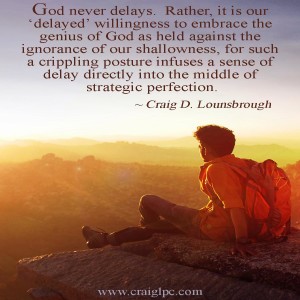
Wednesday Jul 28, 2021
When the Challenges are Bigger Than Us
Wednesday Jul 28, 2021
Wednesday Jul 28, 2021
Most of the challenges that we face are far bigger than us. They have a power and a vastness to them that far exceeds whatever resources we have to bring to whatever battle we're fighting this time around. And while we might be able to make a dent in some of these things, and while we might be able to nudge them a bit in a better direction, we rarely have the kind of impact that we would want to have.
So why are the challenges in life typically bigger than what we have on hand to fight them? Why is it that the effects that we can have on them are marginal at best and non-existent at worst? Why have we been positioned with such minimal abilities in the face of such monstrous liabilities? Could it be that these realities are the evidence of God and the resource of prayer that we have been given to engage this God? Could it be that maybe prayer is the answer that we don't believe is the answer? Is it possible that this antiquated act of coming before God is not antiquated at all?
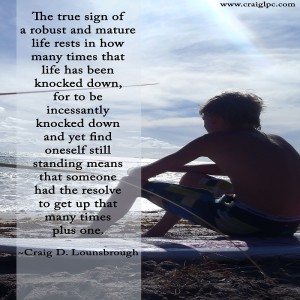
Wednesday Jul 21, 2021
Discouragement - Being Dense to Discouragement
Wednesday Jul 21, 2021
Wednesday Jul 21, 2021
Discouragement. We all know it well because we've experienced it so many times. We watch the world wildly spin as a result of foolish decisions, self-aggrandizing leaders, misguided movements, and abandoned values. We watch jobs crash, marriages evaporate, children run rouge, friendships dissolve, and dreams die. We've watched it all happen, and we stand discouraged beyond words to explain.
Yet, how do we learn to live in a manner where we can find strength to engage our discouragement? How we can exist living being well aware that life will be full of discouragement, but that discouragement need not be the thing that causes us to surrender? How do we find sufficient hope to press forward, fight the battles, bring the change, and make this existence better in light of everything that's working so hard to make it worse? How do we do that? It's by deciding how we will view things. It's determine what our perspective is going to be. It's not about being foolhardy or foolish or naive. But it's about looking at our world in a way that we will become "dense to discouragement."
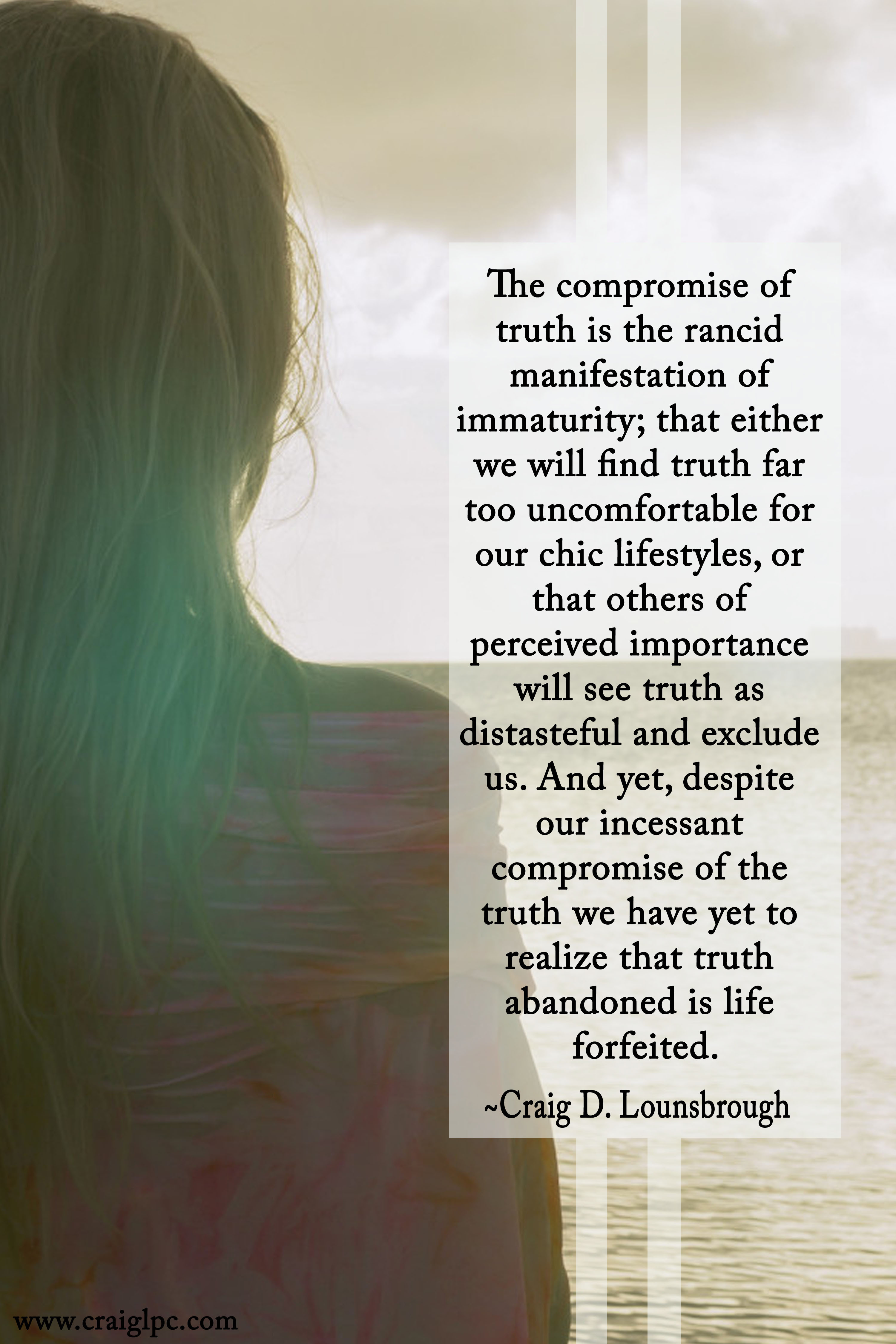
Wednesday Jul 14, 2021
The Discarded Power of Ethics, Morals and Values
Wednesday Jul 14, 2021
Wednesday Jul 14, 2021
We have adopted a "progressive" mentality that has resulted in the discarding of anything that we feel will inhibit the agenda of the progressive mindset. There appears to be a wholesale realignment of our culture that has resulted in a frequently thoughtless and often reckless abandonment of whatever would appear to be obstructive to the frequently unclear objectives of this movement.
One of these appears to be a longstanding set of culturally accepted ethics, morals and values. These have been incessantly cast as antiquated and outdated, having served our culture well in another time where these were actually needed. It is assumed that the progressive nature of our supposedly progressive culture no longer needs these. In fact, they are believed to be inhibiting to a culture solidly on the move. Yet, to be truly progressive is to realize that to truly move forward we must do so with parameters not constructed by the agenda of the moment, but ethics morals and values that have been shaped by God to serve all moments. If we are to forge into the unknown, we must do so guided by a set of things that are known. Otherwise, we will find our culture where we never wished it to be and we will blame that outcome on what something it was never meant to be.
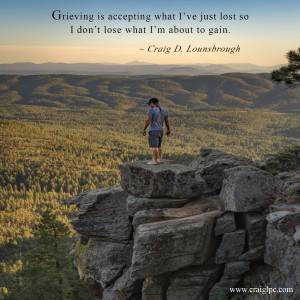
Wednesday Jul 07, 2021
Purpose in Pain - Finding Meaning in the Tough Times
Wednesday Jul 07, 2021
Wednesday Jul 07, 2021
Pain is anything but random. It is the precursor to growth and it contains within itself the very ingredients for that growth. It's opportunity that we would much prefer to pass on, but it's opportunity nonetheless. Sometimes the pain is horrific, at other times it's simply irritating. Pain most certainly runs the gamut. But regardless of the intensity with which it befalls us, it is opportunity knocking and growth waiting to happen.
Despite all of that, we tend to see pain as nothing but pain. We attach misfortune to it. We often see it as the result of someone else's selfish or foolish choices. It is the worst of fate unleashed at the worst of times. It interrupts our momentum, steals our joy, ransacks our hope, and pillages our hearts. And because it does all of that and more, we see no value in it at all. But value is there. Opportunity for growth sits waiting in the smoke and ashes. Pain is painful, sometimes beyond words to describe. But it is also opportunity.
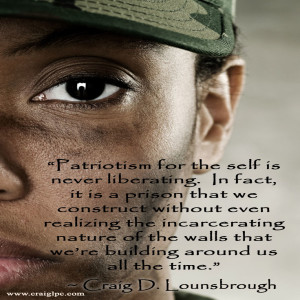
Wednesday Jun 30, 2021
Liberty - It's Not Something That Just Is
Wednesday Jun 30, 2021
Wednesday Jun 30, 2021
Too often we don’t appreciate what we didn’t work for or had to sacrifice for in one way or another. Hand something to us with no effort exerted on our part to acquire it, and we’ll probably exhibit some scantily shallow and rather quickly fleeting degree of appreciation for it. But make us work for something and expend actual energy in order to obtain it, and we’ll likely hold it with noticeably more importance. Force us to step it up and sacrifice for some cause to the point that we lose something desperately cherished in the pursuit and it becomes valuable above and beyond most other things. Press us to the edge and put us in a position where we actually risk dying for something and that this one cherished shot that we have at life hangs in a frighteningly precarious balance, that ‘something’ becomes indescribably priceless.
If we didn’t give something in order to obtain something, then we’re probably holding it rather loosely and with some inexcusable degree of disregard. If there’s not some work or sacrifice or risk in the exchange, then the greatest gifts imaginable can experience the greatest disregard conceivable. Taking great things for granted is little more than taking them to a grave from which we can never reclaim them. Liberty is one of those things.
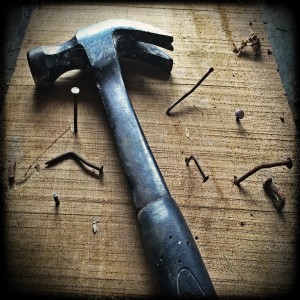
Wednesday Jun 23, 2021
A Work Ethic - What's Ours?
Wednesday Jun 23, 2021
Wednesday Jun 23, 2021

Wednesday Jun 16, 2021
Positive Thinking - Or Just the Truth
Wednesday Jun 16, 2021
Wednesday Jun 16, 2021
We tend to talk about positive thinking as opposed to negative thinking. We associate negative thinking with depression, darkness and an overall pessimistic view of life. Negative thinking can be our way to avoid failure, offset our defeats by setting them up to happen, and reduce our expectations to some point so incredibly low that anything that happens can't help but be a success. We can certainly find great value in such a dynamic, but in many respects such an orientation is far too limiting. While the idea of positive thinking is certainly powerful, it appears to miss a more fundamental and core principle that can be utterly life altering on every level of life. This podcast explores the idea of positive thinking or just plain truth.
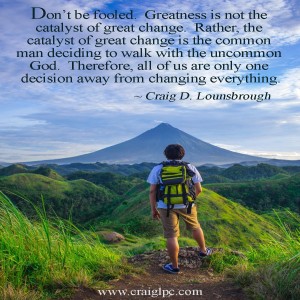
Wednesday Jun 09, 2021
The Bottom Line - What Drives Our Decisions
Wednesday Jun 09, 2021
Wednesday Jun 09, 2021
We make decisions all day, everyday. Whether those decisions are the redundant routine things that fill up most of our days, or those decisions are the seminal moments that alter our lives for the rest of our lives. Some of the decisions that we make are conscious; choices that are the product of much time, rigorous thought, the balancing out of potential consequences, weighing the pro’s and con’s, performing analysis sometimes to the point of paralysis, and drawing on whatever our resources might be to make the best possible decision. Sometimes our decisions are well researched,talked about, prayed about, stewed over, mulled over, poured over and turned over in our heads until our heads hurt.
It seems that the real truth of the matter is that the things that drive our decisions are much less about the reality of whatever those decisions are and much more about our underlying value system. What drives our decisions is something much more core to who we are. The chemistry and alchemy of our decisions arises from core values that shape our perception and our thinking. To say that our choices are nothing more than a mix of all the stuff of whatever our present options represent cheapens the ability we have as humans to make powerful decisions in the most difficult of situations. We’re driven less by the realities of what we’re facing, and more by the core values, beliefs and deep within us. So therefore we might ask, "What does drive our decisions and do we want those things driving them?"
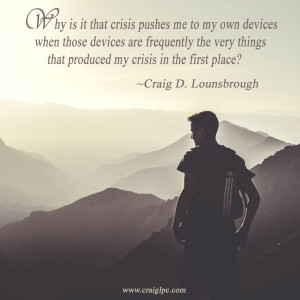
Wednesday May 19, 2021
What Do You Say at Times Like These?
Wednesday May 19, 2021
Wednesday May 19, 2021
What do you say in the midst of crisis? What do you say when everything is turning sideways and the world around you in roiling in some sort of perpetual chaos? What do you say? What do you say when the pain is overwhelming, the solution is underwhelming, and the path out of whatever this place is doesn't exist? What do you say when the bottom drops out, the sky falls in, and we're left in a free-fall that's bottomless? What do you say?
There is much to be said in times such as these. Much. The problem is we don't think about it. We get worn-down by worn-out platitudes, or the empty promises of a lost culture, or the propaganda of the various soothsayers that run rampant throughout our culture. We mope around in the muck and mire of the anemic pablum of people who are more lost than we are. But there are things that we can say. Great things. Healing things. Timeless things. Hopeful things. What do you say at times like these? Listen and find out.
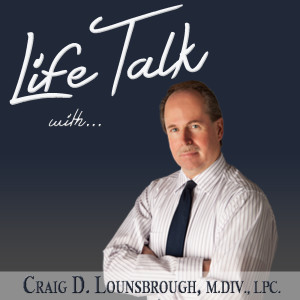
Wednesday May 12, 2021
Magnificent Living - Taking Things for Granted
Wednesday May 12, 2021
Wednesday May 12, 2021
Aldous Huxley pointedly pointed out that “most human beings have an almost infinite capacity for taking things for granted.” If you think about it, “infinite” is a rather extensive capacity and we‘re quite adept at utilizing that capacity to its fullest extent. Taking things for granted means that they no longer garner our attention. Out of their value to us they’ve lost their value. Because of the fact they they’ve served us quite well and that they’ve served us quite consistently, we develop the sense that they’ll always be there, or that they’re just supposed to be there. We assume that things occupy a place in our lives just because they’re supposed to occupy a place. We make things something more like an entitlement or something we’d ascribe to the norm. And so, we take things for granted.
The incongruity of it all is simply that things that should demand our attention, or are at least deserving of it are ignored. Gifts, talents and personal abilities are exercised day in and day out but aren’t seen in the exercising anymore . . . at all. Because they’re not seen, they aren’t cherished as we are quick to forget that which we’ve rendered invisible. People or resources or abilities that should be held in high regard or seen as a privilege are categorized as the stuff of ‘stuff.’ Through inattention and the amassing of whole bunch of stuff which is largely nothing more than a whole bunch of stuff, we take things for granted. That fundamentally means that it’s fallen off our radar under the pretense that it just is.
As we meander along and do that, things gradually fall unnoticed behind an invisible veil where all of these things are smack-dap in front of us but are completely invisible to us. As they fall behind the veil of taking things for granted, their presence in our lives remains entirely unchanged, yet because of their invisibility their worth or value, which is sometimes terribly immense, is lost. We walk around with precious things, and precious people, and precious resources, and precious talents that are entirely invisible and therefore ignored.
We don’t often think of actions that show us as rich; that seize the strength and wonder of our inherent humanity and cause us to do great things. We miss the fact that sometimes just getting through a typical day requires feats of strength, tenacity, courage and outright determination. Most often life’s about survival and getting ahead, if we can even pull these off. But we tend not to think that the commonplace and mundane are quite often feats of great wonder, drawing from deep within us abilities that we’ve taken for granted.
Is it possible that the mundane is really the marvelous in quiet disguise? Have you ever considered the possibility that great feats may really be nothing more than an intentional and focused use of the resources that existed within the person . . . resources that we likely have an ample and similar supply of ourselves? Have we allowed the marvelous within us to be taken for granted so that its dollar value has been degraded to pennies when in reality it’s all priceless beyond any collection of pennies regardless of how massive? And are we in a place where we need to consider all of this because we’ve underpriced and marginalized our worth through the persistent effort of taking things for granted?
Taking Things for Granted By Mental Laziness
So we’re robbed and we’re the culprits that did it. We’ve used the highly effective tool of taking things for granted. Part of our taking things for granted involves our dogged mental and emotional laziness. Things of true worth in life don’t clamor for our attention. They don’t attempt to seize the stage of our lives in some brazen display, touting their worth as they strut back and forth across that stage. Rather, the things of true worth are to be sought out, looked for, and discovered in a passionate search for the stuff of life that genuinely holds the stuff of life. It’s a rejection of all the plastic and veneers; all the things that attempt to replicate the real stuff. It takes effort to find the things of real value; great and unrelenting effort that we often don’t want to exert. Plastic and veneers are much, much easier so we’ve got loads of them. We take for granted ‘taking things for granted.’
Taking Things for Granted By Entitlement
And then there’s the whole “I’m owed” mentality. Things are just because they’re supposed to be. This whole deal we call life is obviously supposed to come with all the finery and accessories. It’s just part of the package. It’s just supposed to be. So why value something when it’s not a gift, or a treat, or a surprise, or a bonus, or just a nice addition that somebody thought would tickle our fancy? In whatever way, shape or form that extra stuff comes in, it’s a bit of icing on the cake of entitlement, but it’s not the cake. The cake is just supposed to be and so it is. Entitlement is magically toxic, tragically transforming blessings to bare-bones stuff and priceless gifts to allocated accessories that are ours solely by virtue of our birth. We take for granted ‘taking things for granted.’
Taking Things for Granted By Permission
It’s quite amazing how many things we can give ourselves permission to do. Sometimes what we give ourselves permission to do is to tolerate what we shouldn’t, which is likely the worst kind of permission we grant ourselves. Tolerating something implies that we probably shouldn’t be doing it in the first place but we’ve chosen to do it anyway. There’s a dash of ignorance and a pound or two of stupidity in a lot of the permission that we grant ourselves. There’s a turning away, a bit of ethical ‘sleight of hand’ and some mental ‘nip and tuck’ that numbs us enough so that we can pass on our integrity without really feeling that we’ve passed. So we give ourselves permission to take a whole lot of things for granted. We repeat this to the point that we take for granted ‘taking things for granted.’
Taking Things for Granted Because It’s the Norm
Sometimes we look around us and we try to find people doing the things that we’ve questioned doing. Somehow, if someone else is doing the stuff we find questionable, their actions lend whatever they’re doing just enough legitimacy to do it. If someone else is doing it, we sometimes feel that we can step over the line just enough to dabble in the behavior and then jump back to the other side of that line. So, in a world that sloughs things off, we do the same. We take for granted what those around us take for granted. They reinforce our actions and we reinforce theirs. In time we don’t even realize what we’re doing and we take for granted ‘taking things entirely for granted.’
Breaking the Habit
Magnificent living involves not taking the magnificent for granted. It’s a refusal to marginalize the wonder of life by placing it behind some veil, invisible and lost.

Wednesday Apr 14, 2021
Loving Our Enemies - See Ourselves in Our Response
Wednesday Apr 14, 2021
Wednesday Apr 14, 2021
We get attacked. That’s a reality of life. Somewhere, at some time, someone is going to come after us. We’ve going to get cut, clobbered or end up with an assorted collection of contusions. Sometimes the intentions of those that hurt us are misdirected, and at other times they’re completely intentional. Sometimes the actions of others are the stuff of mindless impulse and therefore kind of shot-gun in their intention. At other times the actions of others are completely malicious, being viciously planned and savagely implemented. There are times when the actions of others are based on an errant understanding of events or circumstances, being tragic mistakes and gross misfires. At others times the intent is simply to hurt so the nature of the precipitating event is altogether irrelevant, other than being a product of cruelty and by-product of selfishness. When these things happen, we naturally respond. Yet, what does our response say?
Obviously we respond. We respond to a whole bunch of things in a whole bunch of ways. Oddly, our response is often not analyzed because we assume it to be normal or appropriate given whatever it is that we’re responding to. If we do in fact analyze our response, it’s often because we thought that our response was too pensive and tentative, or we thought it was a too bit robust and overwhelming. In other situations, we might think that our response was completely misdirected or somehow inappropriate given the situation. Then there are the situations where we feel that we shouldn’t have responded at all when we did in fact respond, or we chose not to respond when we should have.
However we respond, we respond. Whether that’s a response that’s thought ou tor thoughtless, we respond. Our focus then tends to be solely on our response, whether it’s a good response, a bad response, or a rather irrelevant response. It seems that we tend to analyze our response instead of analyzing what our response says about us. There’s this crafting, managing and executing of our response, but really nothing about what the response tells us about us. We might be wise to quit looking solely at the response, turn things over on their backside, and ask what our response says about us. What does the nature and type and kind o response say about who we are? What does the intensity and direction and flavor of our response suggest about who or what we are at our core?
A Bit of Analysis
Fulke Greville wrote that “No man was ever so much deceived by another as by himself.” That should create a whole lot of caution within each of us. Of all the people that we interact with, it is ourselves that we should be analyzing the most. We really can’t afford to live our lives walking in the darkness as if the darkness is the only thing that we can walk in. We can ill-afford to do things like some brainless simpleton, assuming that doing them is just doing them. Truth be known, we’re much, much more complex than that.
There’s a tendency in human behavior to respond without asking why we’re responding the way that we are. Maybe it’s something primitive, something that has to do with the whole concept of fight verses flight. When it comes to survival, we don’t necessarily have the luxury of stepping back and pondering what we’re doing. Or maybe it’s more about convenience; that stopping and thinking and contemplating takes time and energy, and maybe in the rush of it all, it’s just messy and inconvenient. Or maybe we don’t really want to understand why we’re doing what we’ve doing. Maybe that will uncover some less than complimentary things about us that we’d prefer not to know. Yet, we need to know.
What Our Responses Reveal
Insecurities
Often our responses reflect our deep-seated, gnawing insecurities. In some instances those insecurities result in a response that’s wildly disproportionate and entirely over the top. In responding like that, we insure that whatever or whoever’s attacked us is sufficiently repelled or annihilated altogether. At other times we don’t respond at all, fearing that if we do we’re likely to incur further attacks or more abuse. So we run and we hide.
Immaturity
Sometimes are responses are entirely misdirected, mis-allocated and misapplied; in other words it’s all reflexive and nothing of reflection. We may not have the maturity to fully understand exactly what happened to us and why it happened to us. We may not have developed the depth of intellect, insight and the balance of maturity to render a response that’s appropriate to the offense. So, if our response is rather wild, we might be immature.
Impatience
We do tend to be an impatient lot. Impatience simply means that we want some sort of result in the ‘right now.’ Impatience means that we forfeit thinking in favor of doing. We forfeit gathering data in favor of doing the deed. We strike out instead of strategize. Our impatience drives us to an immediate, reflexive action that will likely serve to enflame a situation that we’re attempting to douse. If our response is knee-jerk, we’re likely impatient.
Selfishness
Many times our response is deliberately directed to meet our need or serve our agenda. In the fuming mindset of retaliation we take little if any time to consider the collateral damage of our choices. Nothing happens in isolation. If we ignorantly act as if that were the reality, we’re simply slogging around in the egocentric backwaters of selfishness. If our actions are all about self-preservation and they spurn the common good, we’re likely selfish.
Moral Shallowness
Most of the time, our responses will challenge our ethics and our morals. When we respond to an attack, the most devastating, brutal and agonizing responses are likely unethical. If we really want to ravage someone and leave the landscape of their lives scorched and barren, that action will probably be immoral, or so close to immoral that we’d be stupid to engage it. If we really want to wail on somebody and drive them so far into the ground that they’ll never crawl out, we’ll probably have to stuff our ethics, turn a blind eye and live with the guilt of it all for the rest of our lives.
What Our Responses Say About Us
Don’t just respond, even though that’s the easy thing to do. Ask what your response says about you. Let your responses cause you to respond to you. Ask the hard questions. Do the tough analysis. Face yourself. You will be a better person who leaves behind a better world even when that world attacks you.

Wednesday Apr 07, 2021
Passionate for the Right Things
Wednesday Apr 07, 2021
Wednesday Apr 07, 2021
The question is not, "Am I passionate?" The better question might be, "Am I passionate for the right things?" There's a lot of passionate people in our world today, but often the passions are misguided and self-destructive. People take up questionable causes and advocate for selfish positions in the name of 'passion.' Voices are raised, positions are advocated for, and pulpits of all shapes and colors are pounded. But 'passion' may not be productive. And so, as we advocate for our 'passions,' we might ask how healthy and legitimate our 'passion' really is. For many 'passions' result in our destruction, and we would be wise to make certain this is not the case with any of ours.
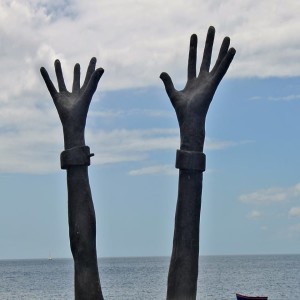
Wednesday Mar 31, 2021
Releasing Your Grip - Possessing Life is Letting Life Possess You
Wednesday Mar 31, 2021
Wednesday Mar 31, 2021
Holding onto something? Of course you are. We all do. There are things that we feel are of great value, for whatever reason they’re of value. Our tendency is that once we determine that something’s of value, or we’re told something’s of value, we tend to grab ahold of it. The degree to which we grab it and the force of our grip on it is determined by how much we value whatever it is that we’re holding onto. Because that’s the case, our grip can be something like a horrific steel trap, or it can be rather loose and supple.
What’s odd is that we don’t often think about how hard we’re holding onto whatever things we’re holding onto. We presume that it’s a natural and normal thing to hold onto the things in our lives that we value or see as central to our lives. We misleadingly assume that once we’re in possession of whatever it is that we’re in possession of, we’re obviously supposed to always remain in possession of it. We develop a kind of hoarding management mentality that naturally dictates that we hold onto things that serve us in some fashion,or contribute to our lives in whatever way they contribute. The bizarre workings of our minds can cause us to hold onto things that don’t serve us at all and are simply dead and pathetically decaying weight. The fact that we possess things causes us to assume that we’re supposed to keep them. What else would we do with them? We assume that holding onto things is natural and needed and necessary and obviously normal. Is it?
What Determines What We Grab
So we inventory what we have in our lives; people, assets, careers, friendships, dreams, goals, relationships, material possessions, various resources . . . all of the sordid stuff that we have in our possession. Then we assign each of those things some sort of value based on a grid intricately and tediously constructed from our goals, our value system, our present position in life, whatever threats or risks we perceive that we have, our sense of security or lack thereof, our self-esteem or any myriad number of determining factors. Then our grip on these things is determined by the value we assess them as having.
We also inventory what we don’t have in our lives but want to have. We look outside the realm of our possessions to those things that we want to bring within our realm. Whether those things are fiscal assets, material possessions, various relationships at various levels of relationship, career goals molded by our aspirations, the square footage of our home, the reach of our influence, our place in some social food chain, or the smoothness of the image we want to project to those around us. Whatever we want, in whatever way we’ve determined we want it will likewise determine the degree of our grip on that thing. Likewise, whatever we’ve determined we want will also determine the degree of our grip on the things that it will take to get it. We’re all about the business of grabbing something to secure our possession of it, or maneuver ourselves in order to get it.
What About Grip?
It’s interesting that the harder we hold onto something, the more likely we are to kill it. We assume that strengthening our grip insures the continued possession of whatever we’re holding onto. Indeed, our possession is in all probability insured. However, what we don’t realize is that we’ll possess it, but it’ll likely be empty and dead. Things that are of real value in life can’t be held like that. The oddity of it all is that the very things that we want to possess; the things that we vigorously expend our lives in some helter-skelter rampage to possess, those very things are killed in the possession. All of that seems terribly contradictory, but it’s terribly true. How many times have we held firmly onto something only to lose it anyway despite the iron grip we had on it? In how many instances have we gone to great lengths and dizzying heights to insure the continued possession of something,only to have it slip right through our fingers? How many times have we rigorously secured something by nailing it down,fencing it in, sealing it tight, cinching it firmly, locking it down hard,insuring it, putting it in a trust, or somehow solidly encasing in some tedious manner or fashion only to lose it despite the aggressiveness of our efforts?
What Do We Possess?
Yet, there are times when we feel we haven’t lost something despite our grip on it; that we’re still in possession of it and we have it stored away in whatever vault we store things away in. We point to those things as evidence that holding onto things doesn’t necessarily result in the loss of them. We’re confident that we can grab ahold of things with an iron grip and despite the iron grip keep them very much alive. Yet, can we possess something and kill it in the possession. Do the great and wonderful things die if they’re held? Is there something about the precious and sacred that in order to live they must be free? Once it’s dead, what is it that we possess? How many dreams have we achieved but have seen so many other things die in the effort to achieve them? And once the dream is hauled into the boat of our lives as some mammoth catch, does it flounder at the bottom of our boats and then expire in the rancid air of captivity?
We can hold on to many things and point to them to show that we’re still in possession of them, but really not be in possession of them at all. Things that we grip firmly lose their life and are irrevocably sapped of their vitality. They become depleted and hold no interest for us anymore, entirely losing their luster and appeal. The things that are left after we hold onto them are more often than not empty carcasses and hollow shells that have the illusion of life, but none of the essence.
Possession Is Found in Not Possessing
If we want to embrace life, we must never set traps for it or cage it. We must understand that it is in the wildness of living that we live. It’s in the privilege of observing life in all its unbridled passion and surging forcefulness that we are enriched and gorged in the enriching. Possessing life can only happen in not possessing it. Possessing life is observing it and then romping and frolicking right along with it. In reality, it’s letting life possess you. It’s giving life permission to have its way with you, not demanding your way with it through the possession of it. Possession of this thing we call life is giving up the possession of ourselves and our rights to possession and handing that over something infinitely bigger than us. Surrendering ourselves and letting ourselves be in the possession of life is the secret to possessing life.
So, what are you holding onto? Whatever it is, it’s going to die. Maybe you need to free yourself to be in the possession of something greater in you and realize that everything that you’ve looked to have in the mad race of possession is all right there.

Wednesday Mar 24, 2021
Loving Our Enemies - More Than a Nice Idea
Wednesday Mar 24, 2021
Wednesday Mar 24, 2021
Life has those lingering proverbial statements that seem timeless; those quips and quotes that have that some kind of message that’s just so compelling that you simply can’t ignore them. Whatever they say, and there’s a bunch of them that say a whole lot of things, they say something that’s so core to us,or who we’d like to be that secretly we’d love to be able to live them out. It seems that because they have something genuinely real to them they persist indefinitely because they’re indefinitely fresh and relentlessly applicable.
However, it seems that these timeless, proverbial treasures are so good that they’re too good to be true, or least too good to be achievable. We’d really love to be able to actually do what they say and live like they suggest, but they’re pretty demanding and rigorous. In fact, they’re sometimes so demanding and so rigorous that they seem a bit impossible. Yet, they remain compelling nonetheless, like some precious gem just beyond our reach.
Love Your Enemies
The command to love our enemies is clearly one of those things. It certainly sounds nice. It would probably relieve a whole lot of our stress. It would likely make the world that “kinder, gentler” kind of place. It would probably diffuse a whole lot of stuff and smooth over things before any real damage is done. Yeah, but how realistic is that command that really? Face it; we live in the 21st century. Look around. It’s not a “kinder, gentler” kind of world. Rather, it’s a place where we need to be on our guard and protect ourselves or we’re eventually going to ‘ground round’ in some situation with someone sooner or later.
Taking that thinking a bit further, how do we love the people who are beating us up in any number of ways that we get beat up? In fact, is loving them even remotely reasonable as that seems to imply that we’re somehow giving their actions a degree of permission or legitimacy. Aren’t we telling the offender that their offenses are okay? It also seems to suggest that we’re up for further offenses and that we’ve become something of the proverbial ‘doormat’ in our relationship with whomever wants to walk on us.
Oscar Wilde said “always forgive your enemies - nothing annoys them so much.” That sounds kind of appealing in a sneaky kind of way because that’s really about a covet kind of revenge. In actuality, that’s more a sinister way of getting back at our offenders without them really knowing that we’re getting back at them. That’s not about love.
I think we move closer to something of substance in the words of an unknown author who wrote, “The face of the enemy frightens me only when I see how much it resembles me.” That should give us pause . . . probably a whole lot of pause. There’s another proverbial statement that says that what we hate in others is really what we hate in ourselves. The hatred for our enemies may well be the characteristics in them that we see in ourselves. It would seem that that should start to reorient our thinking a bit.
The Cost to Our Enemies
What we don’t consider is the cost our enemies pay in being exactly that . . . our enemies. Being our enemy demands that people do things or carry out certain actions that make them our enemies in the first place. Our enemies are not enemies without some sort of decision or action that makes them our enemies. Something was done, or some event transpired, or some situation was initiated that clearly put them in a starkly adversarial position relative to us. In other words, they had to do something to become our enemies.
And that action, whatever it was, had to be severe enough to rupture, smash or entirely decimate our relationship with them. Their actions had to be sufficiently toxic to set them completely at odds with us. Something pretty significant had to transpire to polarize our relationship with them and put us at the opposite end of spectrum in some sort of adversarial stand-off. Something pretty bad had to have been done by our enemy.
What we think about is the cost of that action to us. In fact, we tend to be all over that. We can easily and quite extensively tell people how bad it was, how much it hurt, how unfair it was, and how uncalled for the actions were. We can recite all of that with great ease.
What we don’t think about is the cost to our enemy in doing what they did to us. Of course we don’t. We probably don’t have a whole lot of interest in going over that because we’d prefer to lick our wounds in light of the abuses that were perpetrated upon us. The abuses levied against us get all of our attention and the majority of our emotional airtime. It’s not that we shouldn’t deal with those things, but they become our entire focus.
Yet, perpetrating these things upon us comes with a cost to the person doing those things to us. In fact, it’s likely that the cost to our enemies for whatever it is they’ve done to us is greater than the cost of those actions upon us. We don’t see the cost to our enemies because we’re the ones in pain. We assume that the level of pain we’re experiencing reflects the cost, and it’s likely that our enemy is not in pain. In fact, they might be downright happy and somewhat elated about what they’ve done to us.
However, there are consequences for how we live our lives; deep, profound and devastating consequences. Many times those consequences aren’t reflected in the pain someone is experiencing and they’re not necessarily reflected in whatever the outcome of the moment is. Most consequences are much deeper, something like a slow acidic burn that gradually eats away at the edges of our souls; killing us in small degrees so that we die a slow, unrecognized death. There’s a conscience ignored that will eventually have its day. There’s the reality that nothing that’s ever done in isolation and that when we sow pain, or betrayal, or abandonment, or any other destructive thing it will affect everything else around us. Then there’s the reality of time and circumstance that simply means that what we visit upon others will eventually be visited upon us. And finally, there’s the numbing action that occurs when we act in hateful and deceitful ways; a numbing that robs the robber of the essence of their humanity, therefore robbing them of the whole of life.
There are terrible consequences that are tantamount to the destruction of the offender’s life. In harming us they are in turn harming themselves in ways that they cannot imagine; ways that they would likely repent of if they could only see it. And so, we need to attend to our own pain, but in understanding the loss to our enemy we can find a place to love them.

Sunday Mar 21, 2021
Love - A World Without It
Sunday Mar 21, 2021
Sunday Mar 21, 2021
What would the world be like if there were no love? It's probably not all that unreasonable to say that without love, the world may not exist...at all. Without love, mankind would likely destroy itself in all the sordid ways that love keeps us from destroying it. Love is essential. Absolutely. Love embodies not only love, but a host of other principles and values that hold-the-line against our lesser urges and less than admirable traits.
A world without live wouldn't be a great place at all. And so maybe we should ask how we create more of it. How do we enhance the love in our world? How do we strengthen the love that exists, and yet expand the scope and impact of it far beyond what it is? And while such notions often sound idealistic and the stuff of romanticized dreamers, what would actually happen if love were expanded? What would happen if it took a greater place in our lives, our families and our communities? What if?
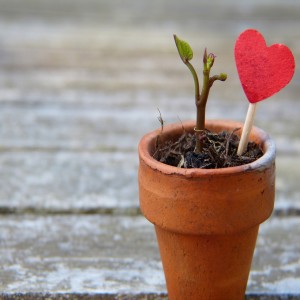
Wednesday Mar 17, 2021
To Love or Not to Love - That's the Question
Wednesday Mar 17, 2021
Wednesday Mar 17, 2021
It seems one of the oddest dichotomies. Life is full of strange and downright weird contradictions. At many times in our lives, at many points both important and not so important we find ourselves pulled in two completely opposite, but equally compelling directions. At times it seems that two entirely different people reside within us, each mesmerized and held captive by things completely contrary and contradictory; each aggressively vying for the thing that pulls them in opposite directions. Of all of these kinds of moments, there is one that seems more vexing than the rest . . . and love drives it.
We all want to love and be loved. There's a whole lot that we can do without. As much as we'd love to do without love at times, we're simply incapable of doing so. There's something woven through the very core of our tapestries that desires to both expel love out and draw it in. We'd love to do it without fear or reservation. We'd love to be wrapped init, immersed in it and enriched by it. We'd love to have it abound to the point that we drown ourselves in it because we know that such a drowning is nothing of dying but everything of living.
We know that a world submerged in love is a world safe, precisely balanced and warmly thoughtful. It would be a world centered on the good, protected from the bad, a place committed to refuge and stoic inits nurturance of all. We know that a world embedded in the giving and receiving of love would not be naive, it would be never be careless and it would always err in favor of risking for the good of others despite whatever the magnitude of the risk might be. It would cultivate the best of our humanity and patiently reshape that which is not.
We know that this kind of love between two people is nothing short of marvelous and mystical; something that brushes right up to the edge of our humanity and lavishly spills over into some place that we recognize we were designed to live but seldom discover, much less visit. Love is not a reality that disappoints. It's not some idea of fanciful dreamers or misty-eyed idealists. It's not something spun from the pens of secluded novelists or cooked up as some idea to offset the pain in our world. Rather, it's the only thing powerful enough to endure when everything else does not. Love is a staunchly core reality that we rarely ever find. And it is in missing it that we experience disappointment.
Once Burnt, Twice Smart
Loving means risking. There's no way around it.As with anything truly valuable in life, there's always something of risk in attempting it. It seems that we should be able to love without the concurrent risk of being hurt in the loving. Yet, in the reality of the world that we live in, good things stand toe-to-toe with the bad.
So when we love, we choose to be vulnerable. In reality, there is no other choice. We must choose to open ourselves up because unless we do so, love has no place to go. Unless we do so, it will beheld outside of us in some place where it can never 'be and do' all it was designed to 'be and do.' Unless we open up, we will hold it at bay and long for it while it's right at our very fingertips.
So we eye it and contemplate it and thirst after it, but we don't reach out for it. Typically we don't reach out for it because we have before. And in doing so before we've been burned . . . badly burned. We've been hurt, or betrayed, or back-stabbed, or abandoned or any number of other cruel things that took our hopes of love and incinerated them into something of acidic smoke and charred ashes. "Once burnt, twice smart" as they say. It should not have been, but i twas. We learn never to go there again because being hurt in love always seem to far, far outweigh the love that we originally sought.
Playing it Safe and Killing Love
Much like anything in life, we can play it safe. Playing it safe doesn't mean that we will be safe. But there's some sense that we can make it safer anyway. Yet we insulate ourselves from love. We want it, but the risk is too great. We thirst for it, but we can't bring ourselves to risk for it. We face the terrible dichotomy of wanting something so desperately, but having that core thirst for love thwarted by all the fears that come with having loved before and having been burned.
So love goes wanting. We create thin and shallow replacements for it so as to reduce the risk of reaching for the real thing. We call a lot of things"love" that run the gamut from something that approximates love to things that have nothing to do with love at all. We cheat ourselves, we cheat others and we cheat this single, precious opportunity that we have to live and love.
Love, Again and Again .. .
We need to love. We must. We can do so realizing that all the grievous pain of loss will never offset the wonder of love. We can do so with wisdom, boundaries and respect. We can walk into love with our eyes clear rather than fogged by the fraudulent love we call infatuation. We can love responsibly so that it does not become abused and turn into something it was never meant to be. If we cherish love, respect its power, refuse to use it for our gain, always commit it's benefits to others and are lavish in our expression of it, it will serve us well.
And so why risk loving? Because the risk will always be offset by love. Done well, the risk will be always be worth the risking. To forfeit love is to forfeit much. "To love or not to love?" That's up to each of us individually. Your choice, whatever it might be, will impact you more than you may realize.

Sunday Mar 14, 2021
It's Over - When It's Not
Sunday Mar 14, 2021
Sunday Mar 14, 2021
It's over... but it's probably not. It's not about something being over. In reality, it's more about a negative attitude that thinks something is over when it's not. We think that some dream is forever gone, that they'll never be another relationship, that our career objectives will always remain objectives, and that life will never fall in good places for us. Often, we think something is over before we even start it, which doesn't make something over. It makes something that was 'never started' to be anything but never started.
It's over...but it's probably not. Something might be over in one way, but it can be accomplished in another. Something might have come to an unfortunate end, but that never precludes a new beginning. Or something might not be over at all. Rather, we're just too hesitant to press it forward for fear that we might not actually be able to manage success. It's not over, so hang in there.
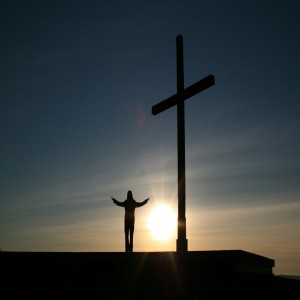
Wednesday Mar 10, 2021
What We Worship - The Things We Bow Down To
Wednesday Mar 10, 2021
Wednesday Mar 10, 2021
We all worship something. For the strong and stalwart types among us, we probably find that statement a bit pathetic or at least somewhat unsavory at best. For the more passive among us, that statement might make us feel more subservient and possibly more used than we already feel. For everyone else that’s somewhere in the middle, it might resonate as slightly antiquated with a dusty touch of religious sentimentality. Regardless of where we fall or who we are, the concept of worship can cut against the grain and be seen as an action that undercuts our independence. Worse yet, the whole idea or act of worship might usurp our independence altogether, which for many us is a rather frightening proposition.
Often we conceptualize worship as being something that demands our obedience and allegiance. To many, worship suggests subservience and a kind of scripted groveling where we’re irreparably stooped and bent in penance or slavery to something. To others, it’s an action that they sense is owed to something in their lives, or it can be an action that draws one close to the object of worship. Whatever the case, we all worship something.
Our Need to Worship
Dorothy Thompson said that “the instinct to worship is hardly less strong than the instinct to eat.” That’s pretty powerful. There’s something woven and intricately threaded within us that demands that we worship. Benjamin Disraeli framed it nicely when he said that “man is made to adore and to obey: but if you will not command him, if you give him nothing to worship, he will fashion his own divinities, and find a chieftain in his own passions.”
There’s something core within us that needs something core above us. So, it seems that we’re always about the process of creating something that can be that “core” thing. In reality we’ve become quite adept at it. In creating,cwe might ask ourselves are we creating just to create, or are we creating something to worship? How much of our energies, our efforts and our creativity are directed toward the creation of something that’s much more than simply something that we came up with, and is actually more about something that we can look up to? In all the scurrying about that we do in life, in all the assorted investments that we make, and in all the tedium that we’re all about, are we in reality creating something that’s big enough and sufficient enough to appear worthy of our worship?
Worship Implies a Throne
Worship suggests that something has been elevated above everything else. There’s something within our lives that holds that key and sacred place; the thing that we have set on the throne of our lives. The whole concept of a “throne” suggests that each life has a place of primacy, a central location or point which everything else draws from, and around which everything is centered. Most of us don’t think about the concept of a “throne” likely because such a notion is the stuff of antiquity; some object that we would associate with ‘pomp and circumstance.’ That imagery doesn’t really fit in our conceptualization of our lives as we live them out in the 21st century. A “throne” is just too eccentric and off.
Yet, in thinking about worship it seems unpardonably imperative to embrace the understanding that we each have a central place in our lives that is second to none. There is that place that we carefully guard, that “hill that we’re willing to die on,” that part of ourselves that’s unquestionably non-negotiable, and that thing that we feel we simply couldn’t live without. There are those places where no one’s allowed and no one can touch. We have that inner sanctum, that holy of holies that’s reverenced and revered. We may not think of these places quite that way, but they’re there. These are our thrones.
Something on the Throne
It would seem to follow that if we’ve got a throne, and we do, that something’s probably on it. Therein lays the great question for each of us. What do we put on the throne? It seems that while we have a throne, we are privileged to put on it whatever we want. Things can demand that we put them on the throne; whether that be people, or dreams, or relationships, or careers, or material objects, or religious beliefs, or the desire for status in whatever arena we desire status in. Petitions for the throne can come from painful events, disheartening failures, any of our many wounds, or a wide array of emotional issues. Things such as denial, hatred, bitterness and revenge can all jockey for a place on the throne. Then there are all kinds of addictions or other destructive behaviors that will want to sit firmly on the throne so that they can exist unimpeded and unquestioned.
Ourselves on the Throne
More often than not, we put ourselves on the throne; or at least that’s what we think we put on the throne. We want to reign supreme in the kingdom that we call “us.” We reign with an iron scepter and we bow to no one. Bryant H. McGill said that “self-made men often worship their creator.” That’s quite frightening. Yet, the throne of our lives is such a massive and sometimes overwhelming place that we’re fooled as to who’s actually on it. It’s really not “us” that’s on it, but things we’ve put there that we think are “us.” Often we’re deluded into believing that we’re reigning, when we’re subservient to what we’ve put on there. Because we put these things on the throne we assume that we control them. Yet, what we put in power, what we elevate to that position will turn and control us. Likely one of the greatest deceptions is to firmly believe that we’re on throne when we’re not.
What Should We Put on the Throne?
The throne of our lives is a powerful place. It would make crystal clear sense then to carefully determine what we put on the throne. Often we’re not wise enough to know exactly what that should be. Our frequent short-sightedness and hedonism are hardly suitable lenses through which to make such a choice. It’s entirely feasible that anything that “we” put on the throne will in time turn on us, usurp us, use us, or possibly destroy us. It’s downright possible that anything that we put on the throne will help will turn to our ill.
Maybe it’s more about “allowing”something on the throne; something that does not demand that place, but requests it. Maybe something that inherently seeks our good over its own. Could there be something that designed us purely for itself and us purely for it; something that is the only natural and good fit for the throne of our lives? Is the throne of our lives custom-made for something or someone like this? Anything else on the throne will surely lead to a life that embraces the agenda of whatever it is that’s on the throne. Only one thing sits on the throne on our behalf. So, who’s on the throne?

Sunday Mar 07, 2021
Integrity - The Stuff of Legends
Sunday Mar 07, 2021
Sunday Mar 07, 2021
As the old saying goes, integrity is defined by what you do when no one is looking. It's a choice...pure and simple. It's a choice to do the right thing regardless of the outcome for us. It's realizing that we may pay a price to be people of integrity, but to 'not' be a person of integrity will cost us far, far more. It's a lifestyle choice. A choice of character; of determining the kind of people that we want to be and the kind of legacy that we want to leave. It's about how we will live out these few scant years that we have to live and what our lives will look like at journey's end.
Too often integrity falls to greed, or ease, or peer pressure, or the demands of the larger culture. But a true person of integrity understands that to fall to these is to fall in ways that we cannot afford to fall. So, be a person of integrity. You won't be perfect at it, and there will be moments of failure that you will regret. But it's not always about winning the battle as much as it is refusing not to fight it.
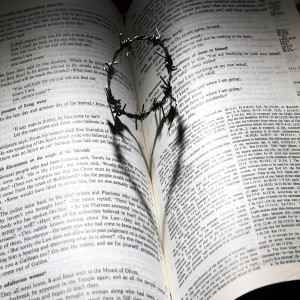
Wednesday Mar 03, 2021
Sacrifice - Un-Centered, Unselfish and Uncut
Wednesday Mar 03, 2021
Wednesday Mar 03, 2021
The concept of sacrifice seems more suited to novels or epic movies. It appears more an ideal; a concept that when observed from a safe distance seems wonderfully heroic, deeply inspiring and chivalrous in a way that stirs up something powerful in us that seems to be forever held hostage despite the fact that it gets stirred. Sacrifice, as we watch it displayed from afar, awakens some internal passion that chafes against our souls in its quest to be unleashed within us.
Somehow sacrifice seems to be something that is entirely right, that is likewise entirely lost. There are those things that we believe exist yet are lost to mankind; the things we are ever in search of not because we are caught up in some sort of shallow fascination with them. Rather, there are those things that we know to be authentically real whose absence must be remedied by their discovery. There are those things that we are made for,yet which are entirely absent.
Sacrifice is one of those things. It’s something that we know we are all called to. It’s one of those things that we know is the right thing to do; that it’s part of our humanity and represents something undeniably central. Sacrifice is the totality of our humanity called upward and outward in a grand display of selfless behavior. It declares that we are not made solely for ourselves, but that we are made for others. It captivates our minds and catapults our actions to do things we never dreamt possible. Indeed, it defines the core of our humanity; representing the ultimate action that one human being can take on behalf of another human being. That’s sacrifice.
The Balance of Sacrifice
All of this doesn’t mean that our lives are always about other people. It’s simply about priority and the arrangement of things in our lives. Our culture, and in many cases our world seems bent on maximizing our personal gains in any situation. There appears to be an inherent mentality that the self can be sacrificed, but only to the degree that the self is not actually threatened, or threatened beyond likely recovery. Sacrifice is calculated and made clean. Certainly, we must exercise wisdom when we take actions on the behalf of others, but a clear set of priorities would seem to dictate the manner in which we act with others in mind.
Priorities
It seems that our actions are dictated by our priorities. There appears to be this inherent grid that we run decisions through. That grid seems primarily to hold the welfare of self above everything else. Clearly,that seems to be in keeping with the natural tendencies and behaviors of base human nature.
Yet, there is a sense of some deep sort that runs entirely contrary to human nature; that in putting ourselves first, we must by necessity put others first. There’s some sort of sense of community, of relationship and connection that deems us only a part of a much large whole. And as a part of that larger whole, we are obligated to preserve the whole above the preservation of self. That dichotomy all seems rather strange because it appears to run against our natural inclinations to make certain that we’re okay and that our personal interests are protected.
What’s the End-Game?
We all ask where we want everything to end up. At the end of it all, when our days are over and the fullness of our time, talents and energies are spent what will be left? That’s a terribly big, and in some cases, a terribly frightening question.
If our focus is upon ourselves, then the end results of our lives will be likewise focused on us. The benefits and resources that we will have garnered and spent will serve us and us alone. That might make for a life that we perceived as satisfying and a good ride, but it ends at our end. The service of self terminates at our own death. Therefore we will have left nothing that outlives us, nothing that serves the greater good, nothing for those who remain. It would seem that the end-game is indeed the end-game in a manner tragic and unfortunate.
What About Legacy?
What kind of footprint will each of us leave? Will it be big enough and broad enough that others are enriched by it and find both comfort and inspiration init? Will it have changed lives, redirected people who were on crash courses to their own destruction, or given someone somewhere some degree of hope in a place where they saw none for themselves? Will our legacy live on, not just for the purpose of living on but for the purpose of giving others purpose? Are we committed to leaving something of value behind that will cost us, but will in turn be of inestimable value to someone else, someplace else? Or are our lives spent in the service of self which means it all begins, and more tragically ends there?
In leaving a legacy, we can’t be so shallow as to leave a legacy of who we were as some sort of monument to self. Monuments are not legacies, they are simply reminders. A legacy is leaving something to others for the sole purpose that it gives them something valuable and needed in their own journey whether we are given the credit for that or not. It’s a selfless detachment where we hand another human being something that may very well be life-saving without them knowing its origin or being able to credit the one who gave it to them. It’s a gift that is given for no other purpose than the nature of the gift and the recipient who will receive it; the giver being entirely lost in the transaction. That is sacrifice.
How Will I Live?
Sacrifice . . . it runs contrary to who we are, but it is in reality everything that we are. The pinnacle of our humanity is ascended when we descend in the service of others. We are raised up when we lay ourselves down. It builds us, it builds others, and it builds families, communities and nations. Sacrifice is the best of our humanity manifest in shining moments when everything that would diminish us is overcome and set aside. It is all of us at our very best. So how then will you live?

Sunday Feb 28, 2021
I Can't Save Myself
Sunday Feb 28, 2021
Sunday Feb 28, 2021
I can't save myself. I do not possess the resources to come to my own rescue. I might be able to do a few things to keep my life moving, or weather a few bumps in the road. I might be able to bypass some road blocks or side-step a few ruts. And while I can maneuver enough to slog along at points, that is not saving myself. When it comes to the need to be rescued from the disasters that befall me, or the times when my resources pale to the struggle within which I find myself, or the challenges that possess a power far superior to any that I possess...I cannot rescue myself from any of these. And in the end, I cannot rescue myself from certain death and the consequences that follow. I cannot rescue myself, and I am glad that I can't. For then I am forced to acknowledge that something or Someone greater than me must exist who can save me from the 'me' that can't save itself.
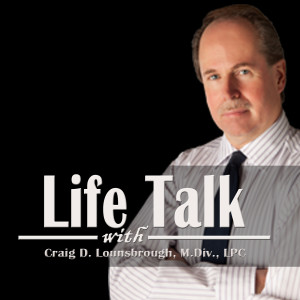
Wednesday Feb 24, 2021
Self-Image - What's Yours?
Wednesday Feb 24, 2021
Wednesday Feb 24, 2021
Self-image is that perspective that we have about ourselves. It’s kind of like looking in some sort of mirror in order to determine what we look like. We stand in front of these mirrors and try to figure out who we are, what we are and what we’re not. We tilt our heads and squint, trying to make out the reflection of our heads, our hearts or whatever’s in there.
We are constantly coming back to these mirrors in order to figure out who we are and what’s in there. Conflict brings us back. A relationship gone bad brings us back. A job loss, financial collapse, personal failures, the upheaval of mid-life crisis or some tragedy all bring us back. These kinds of things make us question ourselves so we’re back in front of some foggy, squiggly mirror with squinted eyes trying to get our bearings again.
Distorted Mirrors
You’ve seen the mirrors that distort your image. Those can be the kind in the Fun House at the circus on antique mirrors aged and faded by time. The image isn’t quite right. Sometimes it’s close and other times its way off, but it’s not accurate.
It seems that most of the time a poor self-image is the result of a distorted mirror. You see, we don’t make our mirrors. Most often they’re made for us. Key people in our lives make them. Mom’s and Dad’s and relatives and friends and teachers and pastors and bosses make them. These people all have a hand in building the mirrors that we peer into.
For some of us those mirrors are fairly accurate. We were fortunate enough to have some solid people around us who knew enough about who they were to help us build accurate mirrors. For others of us however, we came from difficult or dysfunctional situations where the mirrors got all messed up. We were told that we were worthless. Negative messages poured in almost relentlessly. We were labeled, categorized, put in some sort of personally diminishing box, cataloged and stamped as inadequate, stupid, a born loser, a mistake, a burden, an object, or any of a million other destructive identities.
Our mirrors were shaped to reflect these things back to us even if they weren’t there. We gaze into these mirrors trying to see who we are. Reflected back to us are distorted images emblazoned on these mirrors that have nothing to do with who we really are. When we look in the mirror it sure looks like those things are there, but they’re not. They’re convincing alright, but they’re not reality. Our self-image is whittled away and eventually destroyed if we’re not able to understand that what I see is not what I am. Rather, it’s what other people told me I am.
It’s Their Reflection
People in our lives build their reflections into our mirrors. It’s called projection. Projection is where someone places their issues on us. It’s a convenient way to avoid dealing with our issues by putting them on someone else. And so people project their issues or their deficiencies or their quirks into our mirrors. And when we look into those mirrors, those things distort our image.
We are not those things. They are simply a distortion of our true selves. Sadly, we tend to embrace them as being true about us and we incorporate them into our lives as if they are real. They’re not.
Adjusting Our Mirror
We need to adjust our mirrors, to clean them up. That can be done by identifying what people have put there and telling yourself that it’s their image not yours. It’s looking closely enough to ask “whose reflection am I really seeing here?” It’s not about denying any of the bad stuff we see by attributing it to someone else. That kind of stuff’s too easy to do. It’s more about an honest assessment, teasing out fact from fiction and tale from truth. Who am I really? It’s a great question and one worth figuring out. So . . . look in the mirror again, but look differently.

Sunday Feb 21, 2021
How We Define Time
Sunday Feb 21, 2021
Sunday Feb 21, 2021
Time. It's limited. It moves without heeding our desire that it slow down or speed up. It is not interrupted by the greatest joy or the most profound heartache. Once it is spent, there is no redeeming it, elongating it, renewing it, or storing it. It is a precious resource that we would be wise to use with wisdom. And while we can't do any of those with time, we can pack many good things into it. We can use it to change a life, restore a relationship, direct a wayward child, give a bit of time to someone who's lonely, or make a mark on the world that will carry on once our time is over. Time. It's precious. But what we can do with it is precious itself. And so, you might ask, what you will do with the time that you have.
